
























Despite the enormous investment in public transport in recent years, Dubai remains a city which opens up to you when you’re behind the wheel, but pity the driver that gets behind the wheel after a number of years, he says out of experience.
One of my first priorities when I moved back to the city earlier in the year was getting mobile. This has given me the happy opportunity to dip into some mobility options and the rental market, on which I think I’ll devote some pages to in the coming months.
It has come as a shock to me to realise just how out of date my internal road-map of the city is despite being driven around it for years. At every turn, every junction and exit I was fighting my muscle memory until, finally, my octane-fuelled machismo was set aside and I switched to google maps.
(Yes, I understand the irony of talking about mobility for years and having to force myself to use the app –although it was a weekend. Promise!)

The RTA deserves respect and plaudits for its determination to continue to develop the road network of the emirate, and my personal thanks for ensuring that I can concentrate on the important things in life, such as where are people meant to park in JLT.
I can also understand why the roads authority has also issued a warning that it will prohibit heavy vehicles weighing over 65 tonnes in 2024. When I last checked the RTA had spent nearly $40 billion over 15 years. Of course a lot of that was spent on laying tarmac as lengthening the road network from 8,715 lanekilometres in 2006 to 18,255 lanekilometres in 2020 clearly doesn’t come cheap. It is understandable that they would now want to protect a lot of the investment, especially now, post-Expo, that we are facing a maturing construction market.
Assuming that this is enforced, a number of thoughts spring to mind. Firstly, maybe this is a good time for aggregate and heavy haulers to re-look at their GVW and combinations: where can weight be saved and does their current fleet now suit their future needs?
Secondly, if you are a fleet that has been used to double the capacity of its loads what impact will this have on route planning (a hinderance) and maintenance (a potential saving in less tyre wear and repairs).
My third thought is the trailer sector. Can they provide lower weight but still strong boxes going forwards? Literally.
STEPHEN WHITE EDITOR, TRUCK&FLEET ME STEPHEN.WHITE@CPITRADEMEDIA.COMGROUP
MANAGING DIRECTOR RAZ ISLAM raz.islam@cpitrademedia.com
+971 4 375 5483
MANAGING PARTNER VIJAYA CHERIAN vijaya.cherian@cpitrademedia.com
+971 4 375 5472
DIRECTOR OF FINANCE & BUSINESS OPERATIONS
SHIYAS KAREEM shiyas.kareem@cpitrademedia.com
+971 4 375 5474
PUBLISHING DIRECTOR ANDY PITOIS andy.pitois@cpitrademedia.com
+971 4 375 5473
EDITORIAL
EDITOR STEPHEN WHITE stephen.white@cpitrademedia.com
+44 7541 244 377
ADVERTISING
SALES MANAGER BRIAN FERNANDES brian.fernandes@cpitrademedia.com
+971 4 375 5479
DESIGN

ART DIRECTOR SIMON COBON simon.cobon@cpitrademedia.com
DESIGNER PERCIVAL MANALAYSAY percival.manalaysay@cpitrademedia.com
PHOTOGRAPHY
MAKSYM PORIECHKIN maksym.poriechkin@cpitrademedia.com
MARKETING & EVENTS
EVENTS & CONFERENCE PRODUCER
PAUL GODFREY paul.godfrey@cpitrademedia.com
+971 4 375 5470
EVENTS EXECUTIVE MINARA SALAKHI minara.s@cpitrademedia.com
+971 4 433 2856
CIRCULATION & PRODUCTION
DATA & DISTRIBUTION MANAGER
PHINSON MATHEW GEORGE phinson.george@cpitrademedia.com
+971 4 375 5476
WEB DEVELOPMENT
ABDUL BAEIS UMAIR KHAN
FINANCE
CREDIT CONTROL EXECUTIVE CAMERON CARDOZO cameron.cardozo@cpitrademedia.com
+971 4 375 5499
FOUNDER
DOMINIC DE SOUSA (1959-2015)

The publisher of this magazine has made every effort to ensure the content is accurate on the date of publication. The opinions and views expressed in the articles do not necessarily reflect the publisher and editor. The published material, adverts, editorials and all other content are published in good faith. No part of this publication or any part of the contents thereof may be reproduced, stored or transmitted in any form without the permission of the publisher in writing.
© Copyright 2023. All rights reserved.



MOST POPULAR
FLEET
Yango launches Coca-Cola Arena service for concert goers
LOGISTICS
Azza Al Mughairy joins Audi, Al Nabooda Automobiles to celebrate the UAE’s trailblazing women

FLEET
BMW Group Middle East strengthens esports commitment via Nigma Galaxy
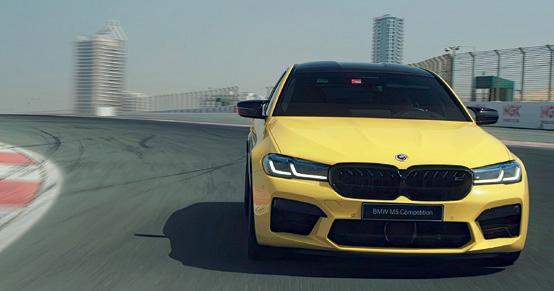
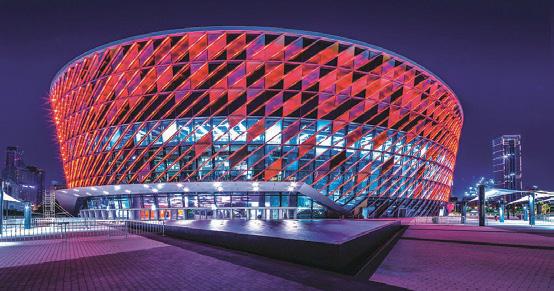
FLEET
The UAE’s first female mechanic and garage owner leads Lexus workshop

LOGISTICS
UAE-Oman Railway announces competitive tender in search of builder for its freight facilities
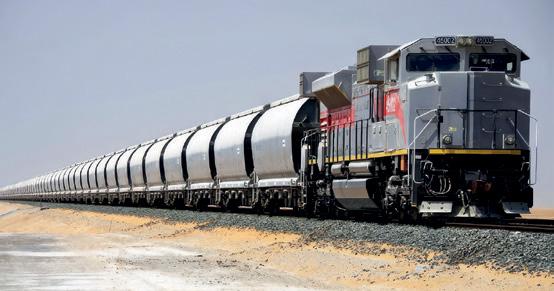
FLEET
Fleet advice: Beating the heat Bridgestone talks to T&FME about ensuring drivers stay safe in the summer heat

FLEET
New 2024 MG ZS EV is the ‘next evolution’ in EV tech, says firm MG claims its latest EV model builds on the expressive design language showcased by the first-generation model
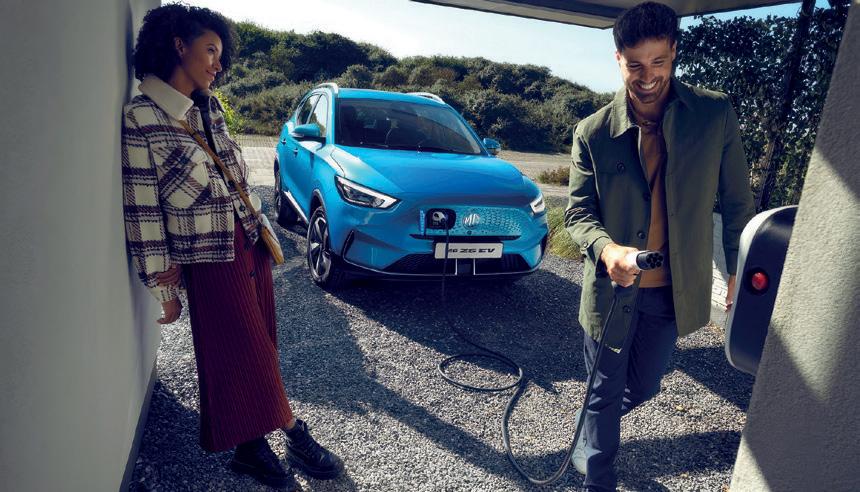
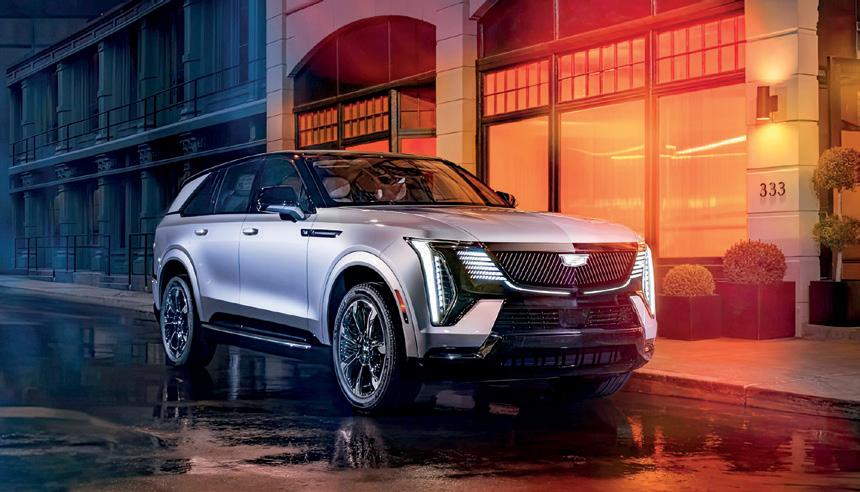
FLEET
Cadillac Middle East unveils the 2025 Escalade IQ
Offering over 700 km of range, the Escalade IQ has been designed to offer drivers the smooth ride associated with the badge
SAFETY
National Five for Your Safety petrol station campaign launched The Joint Committee for Security and Safety has officially launched the fourth edition of the national awareness campaign for security and safety at petrol stations
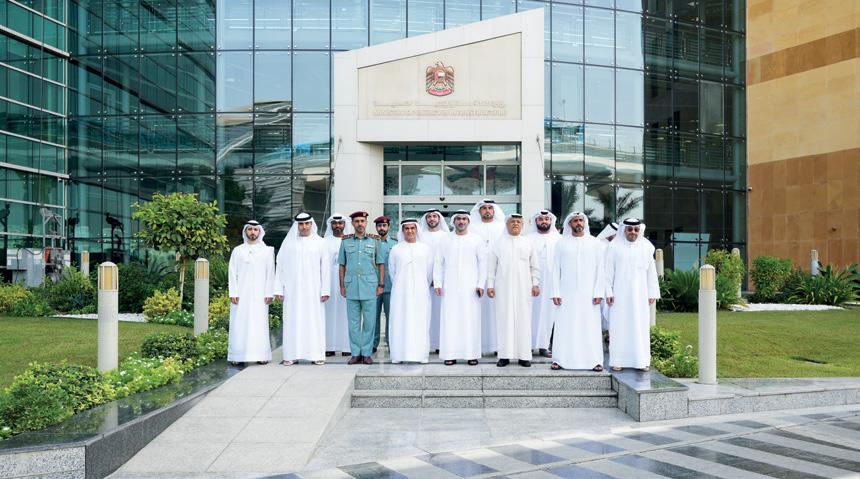
CARS
JETOUR Travel+ strategy and range of SUVs at Great Pyramid of Giza
The brand showcases its collection of medium-to-large SUVs in the family travel series and the travel series, including X70Plus and DASHING


Aramex has become the first logistics company in the GCC to test live tracking for last mile delivery, using the Mobility Services from Google Maps Platform and in partnership with OniGroup. This comes in line with the Company’s continuous efforts to transform the overall customer experience in the region, says the firm.
The brand-new feature by Aramex is built upon a proprietary foundation Aramex’s own Geocoder, which utilises machine learning and predictive AI to predict and generate precise delivery coordinates
with the highest accuracy to increase delivery precision.
This new feature leverages the strength of Google Maps and navigation to enable customers to track live location of Aramex’s “Delivery Champions” from the last five stops until the shipment is delivered to their doorstep, in line with Aramex’s guiding principle to constantly set new benchmarks in customer satisfaction and unlock operational efficiency by leveraging cutting-edge technology and human expertise.
Backed by machine learning, the Last Mile Delivery tracking by Aramex predicts the estimated arrival time of deliveries for
specified addresses – thereby helping set a more precise delivery schedule for the consignment. Customers will receive a notification with a URL on the morning of the scheduled day of delivery, which they can use to track their shipment in real-time with the expected time of delivery, accurate and dynamic to traffic and other delivery operational factors. Once fully implemented, the feature will allow customers to plan their daily schedule more efficiently instead of spending an uncertain amount of time awaiting the shipment – thereby vastly improving the end-user experience for Aramex.
The successful beta testing phase for Aramex’s last mile delivery live tracking is currently underway in the UAE. Once completed, Aramex is planning to roll out the solution across the GCC for all last mile deliveries, with a full-scale launch expected in the first quarter of 2024.
Moe Abeidat, VP - Technology at Aramex, said the roll out of the beta testing for live tracking for last mile delivery in the GCC, “where we are deploying predictive AI along with the latest navigation technology in collaboration with Google and OniGroup, to drive digital transformation across the region’s logistics ecosystem.”
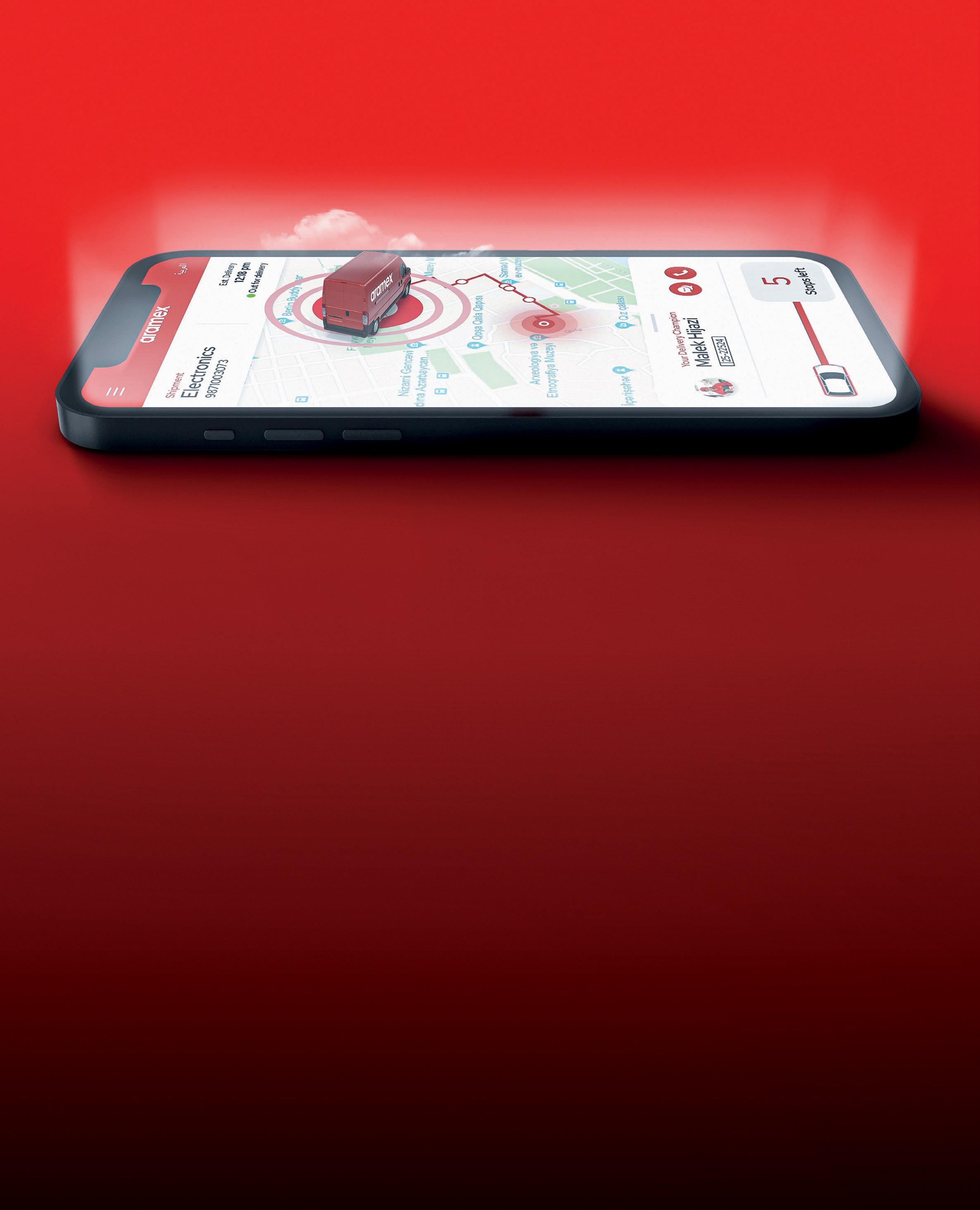
THE AVERAGE DELIVERY TIME FOR LAST MILE DELIVERY IN THE MIDDLE EAST IS TWO TO THREE DAYS, ESTIMATES JUNGLEWORKS
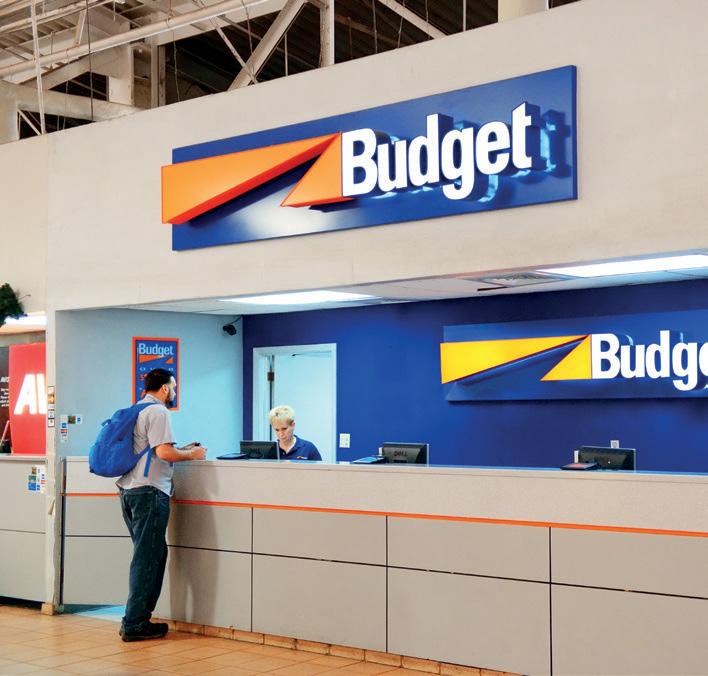
Albatha Automotive Group, the holding company of AGMC, one of the leading importers of premium, high-quality vehicles in the United Arab Emirates, has established a strategic partnership with the Avis Budget Group to add the Budget Rent a Car and Payless Car Rental brands to their mobility services portfolio, further boosting their product offering across the UAE.
The brands will be part of the newly founded Mobility Service division of the Albatha Automotive Group, which will be providing a wide portfolio of self-driven and chauffeur driven services, including rental car and leasing businesses for passenger and commercial vehicles covering all customer needs, vehicle segments and categories. With this move, Albatha rounds off a comprehensive range of automotive and mobility services spanning the import, distribution and after-sales servicing of luxury, premium, mainstream and electric passenger car brands, in addition to car rental and executive limousine services.
Commenting on the partnership, Dr Andreas Schaaf, CEO, New Ventures at Albatha Automotive Group, said: “This latest milestone enables us to offer our customers superior mobility services at the most competitive rates. Through our digital platforms and customer service points conveniently located across the UAE, we look forward to providing customers with the exceptional levels of service that Albatha is renowned for.”
The new Mobility Service division will start their operations with counters in Dubai other outlets across the UAE are planned.
DSV and CBRE say the successful completion of the sale of the logistics player’s warehousing facilities in Dubai’s JAFZA and DIP through a strategic sale and leaseback agreement marks a significant step forward for the logistics sector in the UAE and region.
Businesses typically use leaseback arrangements of their facilities to raise cash for other purposes such as technology or equipment purchasing and upgrades. In this case, Bahraini firm Arcapita acquired DSV’s warehousing facilities with the assistance of CBRE. Covering a combined area of 99,932sqm in JAFZA and 22,955sqm in DIP, these state-of-the-art facilities highlight the importance of providing top-tier
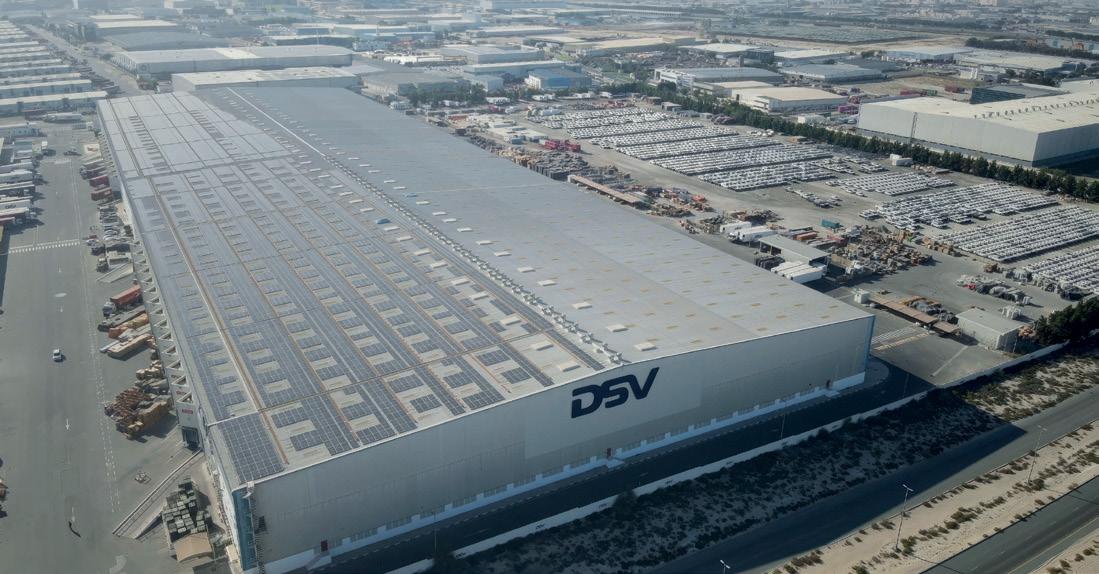
logistics infrastructure to meet the evolving needs of the industry, said CBRE. Regarded as a global leader providing Warehousing Solutions, Air, Sea & Land freight, DSV’s partnership with Arcapita marks a significant step forward for the logistics sector in the UAE and the Middle East, it added in a statement.
While the exact details of the transaction, including the length of the lease, were not disclosed, Chrys Mendonca, managing director, DSV, Dubai, said: “These cutting-edge warehousing facilities symbolise our commitment to advancing the logistics landscape in the UAE and the Middle East.
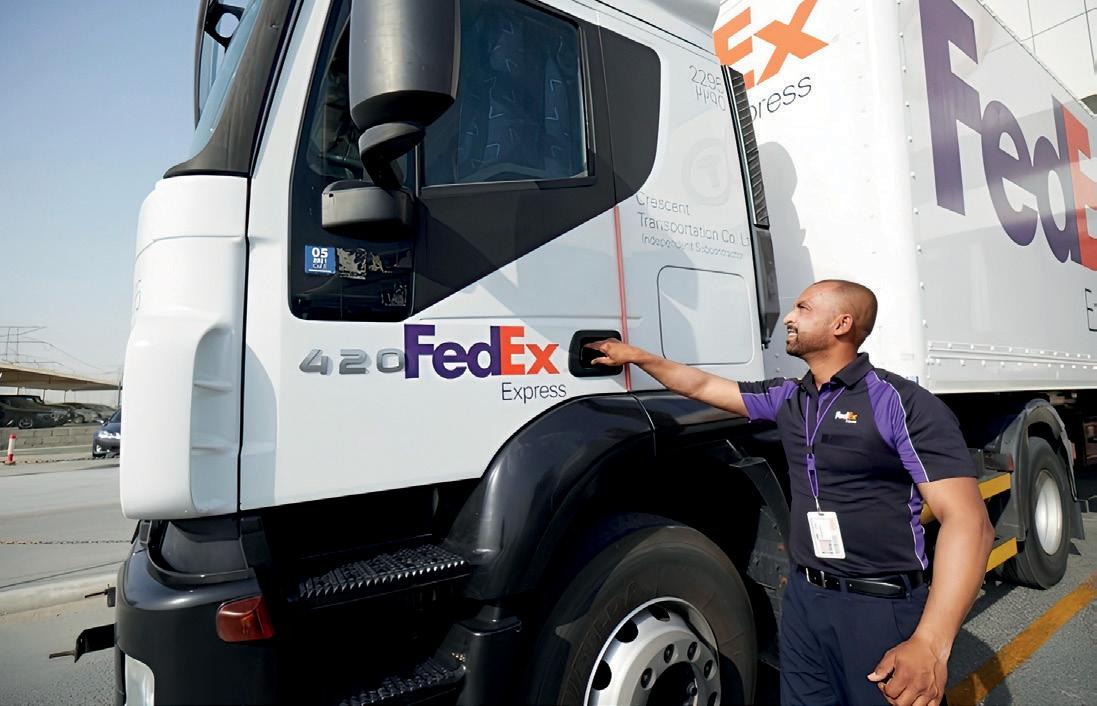
FedEx Express says its new FedEx Regional Economy and FedEx Regional Economy Freight services cater to an increasing demand for cross-border trade in the Middle East region. The newly launched deferred, day-definite road services offer businesses including small and medium-sized enterprises (SMEs) cost-effective shipping solutions for less urgent shipments within key countries in the Middle East.
The services operate accross Bahrain, Jordan, Kuwait, Oman,
Saudi Arabia, and the United Arab Emirates, “while ensuring the safe and secure transportation of goods using real-time track and trace via fedex.com”. With this service, shipments will have express clearance with competitive transit times between three to five business days* for Regional Economy and four to six business days for Regional Economy Freight between key markets. The customs-cleared, door-to-door intra-Middle East economy road services allow customers to save significant costs
on less time-sensitive deliveries of shipments up to 68kg using FedEx Regional Economy, as well as shipments above 68kg using FedEx Regional Economy Freight, without compromising reliability. In addition, customers can take advantage of the suite of digital tools to streamline their intra-Middle East crossborder deliveries, including creating shipments, managing pick-ups, billing and more.
The FedEx Regional Economy services are ideal for businesses across diverse industries that have different shipping requirements ranging from lightweight parcels to heavyweight shipments. Firms can use the economy road service to ship palletised or irregular-sized goods or goods that cannot fit in standardsize air shipping containers.
“We are seeing businesses prioritize day-definite delivery over speed, recognizing that not all shipments are urgent and require next-day delivery,” said Taarek Hinedi, VP, FedEx Express Middle East and Africa operations.
described it as an “affordable and flexible solution” for their mobility needs “providing customers with an incredible opportunity to drive new cars with added savings as they gear up for the new academic year.”
MOBILITY
Selfdrive unveiled its exclusive ‘Back to School’ offer for teachers who started the new school year at the end of the August. Selfdrive has expanded its fleet with more than 1000 vehicles,
with Selfdrive’s exclusive offer for teachers starting from AED1199 for 3 months and AED1099 for 6 months.
The education sector employs over 41,000 people and the offer is open to parents and teachers. Selfdrive
“We understand the importance of a smooth and hassle-free commute, especially during the busy back-toschool season. Our offer not only ensures convenience and comfort but also offers significant savings for our valued customers. With a wide range of vehicles to choose from, including compact cars, sedans, and SUVs, we aim to cater to diverse preferences and requirements,” said Soham Shah, CEO and founder of Selfdrive.ae.


MOBILITY
Yango has launched a new premium service for concert and event goers travelling to the Coca-Cola Arena in Dubai.
The popular ride-hailing company says it will provide a seamless guest experience at Dubai’s home of live entertainment after its latest collaboration the venue. As an official partner of the arena,
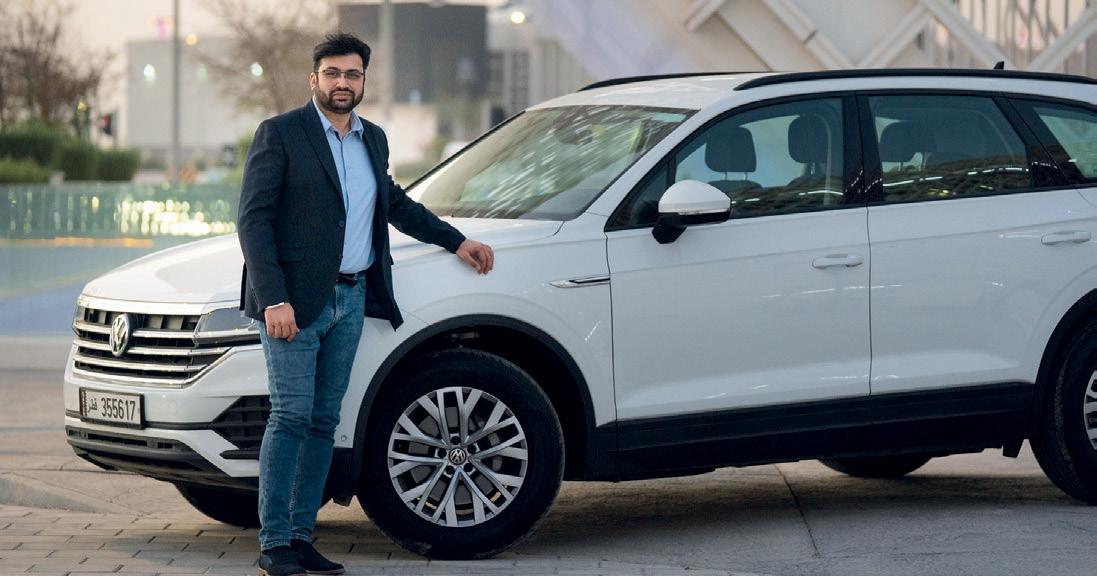
Yango said it will provide premium ride experiences catering to different requirements, at affordable prices. To access the event experience, guests can use the Yango app and choose from comfortable Business, Business XL for groups, and Premier ride options.
App users will receive a 20% discount upon booking their first ride for pick-up
DRIVER SAFETY
or drop-off services to at the Coca-Cola Arena.
“Yango’s commitment to smart tech, great service and convenient options aligns with our objective to ensure unforgettable guest experiences for the season ahead with mega events such as Trevor Noah, KISS and Bryan Adams on the calendar,” said Mark-Jan Kar, general manager of Coca-Cola Arena.
Tadweer joined forces with Abu Dhabi Police to launch its “Drive Safely, Save Lives” campaign. It targets Tadweer’s employees, drivers and inspectors, and aims to raise awareness on road and transport safety. The focus of the campaign is to encourage employees to adhere to traffic laws and follow proper driving conduct on the roads.
Representatives from Abu Dhabi Police conducted an awareness seminar for Tadweer’s employees on the appropriate measures and procedures to follow on the roads.
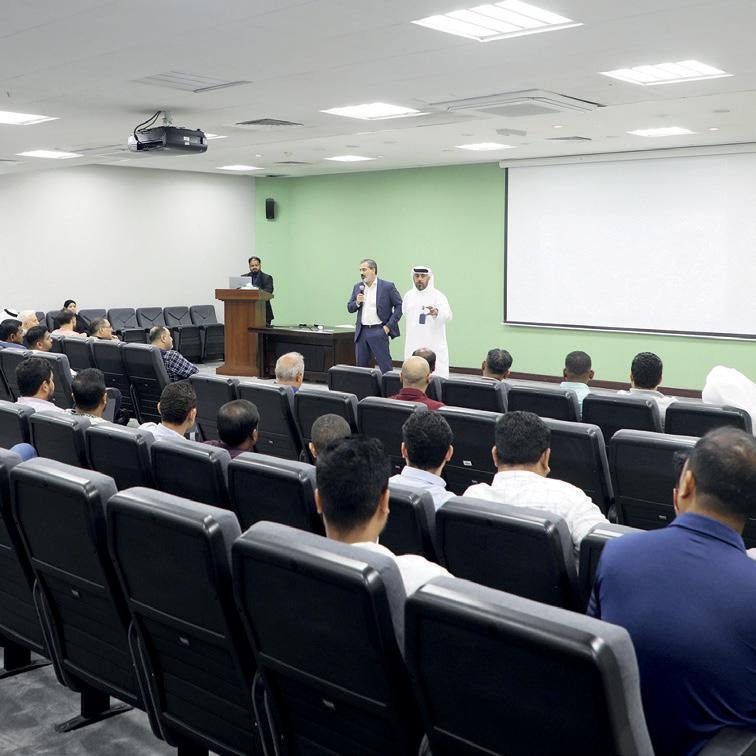
Abu Dhabi Police will hosted a range of training sessions and workshops for employees. The campaign ran across Abu Dhabi, Al Ain and Al Dhafra region throughout the month of August. Tadweer is distributing electronic brochures and leaflets and sharing daily tips on defensive driving in residential areas, construction zones, and rural and urban areas. The safety tips target truck drivers, heavy equipment vehicle operators, and small car drivers, to promote responsible driving as a priority for maintaining road safety.
Hussain Al Hammadi, director of the Health, Safety & Environment Department, Tadweer said the campaign will help drive significant change in road safety.
INSIDE THIS ISSUE: STELLANTIS TALKS ITS DEAL WITH DHL, JOERG MOMMERTZ INTERVIEW, AND MUCH MORE!
50+ exhibiting countries
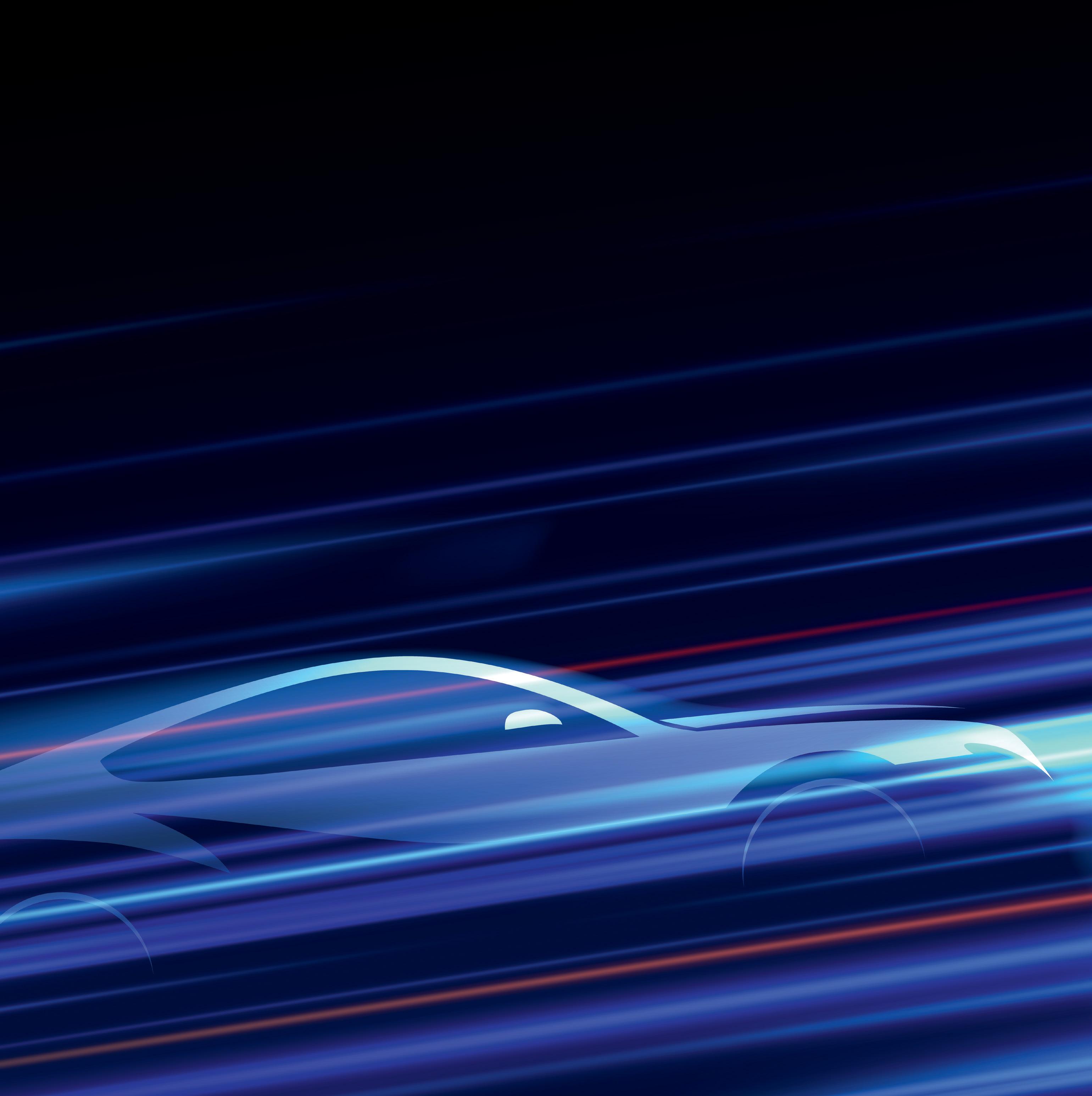
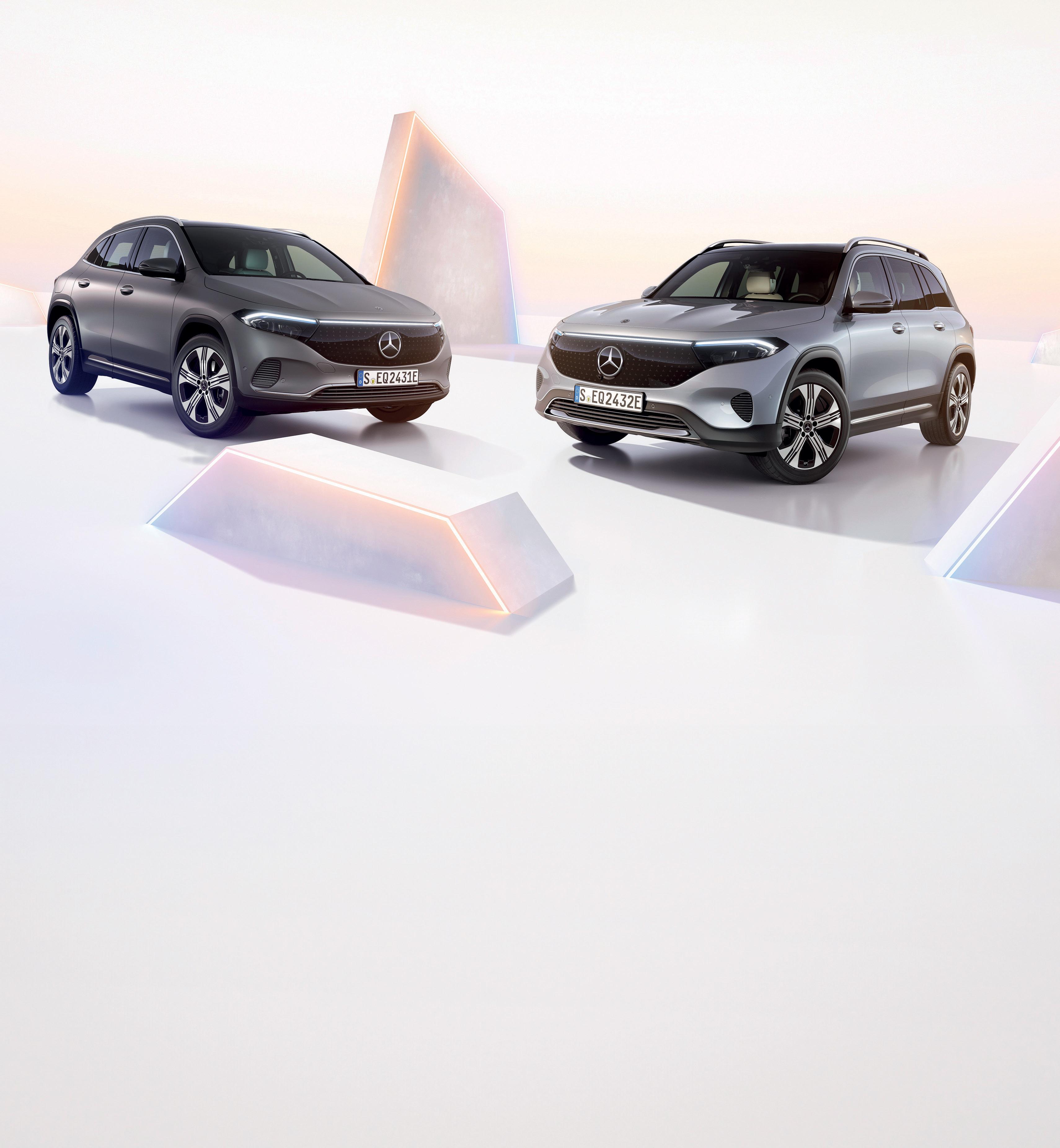
A NEW LOOK AND EVEN MORE
With their striking SUV bodies, powerful electric drive and predictive navigation with Electric Intelligence, the two all-electric members of the Merc compact car family have gained many fans. Now the EQA and EQB are becoming even more attractive to newcomers and those switching to EVs – thanks to fresh looks, numerous efficiency updates and new, useful features. MBUX with improved voice control and driving assistance systems are updated; with Plug & Charge charging technology and optional Sound Experiences, deriver from larger model siblings are making their way into the compact class. For the first time, a trailer hitch is available as an optional extra for the EQB with five seats.
With a newly designed black panel surface with its star pattern at

the front, the EQA and EQB visually catch up with their larger model siblings. A light band connects the daytime running lights of the headlights while a new bumper emphasises the broad effect of the vehicle front. The designers have also changed the insides of the taillights. The innovations in the interior include the currentgeneration steering wheel with touch control panels as well as the trim in brown lime open-pore wood, Mercedes-Benz pattern and backlit Mercedes Benz pattern.
With extensive detail, the engineers at Mercedes-Benz have been able to increase the ranges of the EQA to up to 560 kilometres according to WLTP. The measures include aerodynamic optimisation and highly rollingresistance-optimised tyres. The
new range-maximisation function is helpful in everyday use: energy consumers such as the display or air conditioning can be switched off or their functionality limited in favour of more range.
For the EQB with five seats, a trailer hitch including ESP trailer stabilisation is available as an option for the first time. The maximum braked towing capacity is 1,400 or 1,700 kg (disclosures for front-wheel drive/4MATIC version).
With the Mercedes me Charge Plug & Charge function, the latest EQA and EQB models can be charged even more conveniently at Plug & Charge-enabled public charging points: when the charging cable is plugged in, the charging process starts automatically; customers do not need to additionally authenticate
themselves. The vehicle and charging station communicate directly via the charging cable. Different sound worlds that allow individual acoustic setups are familiar from the larger all-electric models from Mercedes-Benz. Now these Sound Experiences are also available for the EQA and EQB in conjunction with the optional Burmester surround sound system. In addition to “Silver Waves” and “Vivid Flux,” two further sound worlds can be unlocked online as part of the Individualisation Package (as optional equipment). EQA and EQB feature an updated generation of MBUX. The appearance of the displays can be customised with three display styles (subtle/sporty/classic) and three modes (navigation/assistance/ service). As part of the slightly
The new range-maximisation function is helpful in everyday use: energy consumers such as the display or air conditioning can be switched off or their functionality limited in favour of more range.

Gargash Motors has unveiled GAC’s all new GS3 EMZOOM R Style while announcing its availability in an event that took place in their GAC Motor Showroom in Deira.
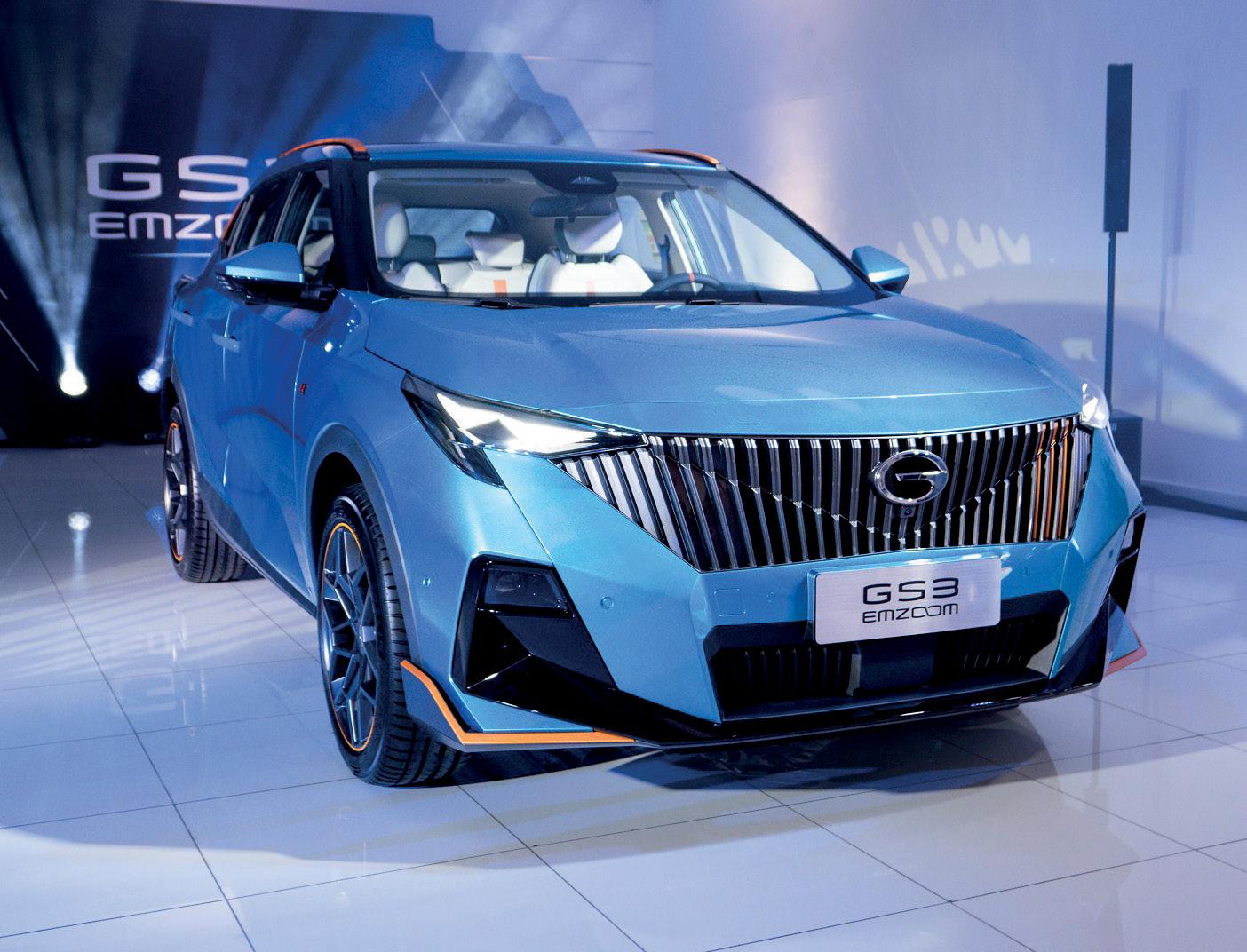

The GS3 EMZOOM R Style is an arrrives with futuristic looks, state of the art features, and spacious interior, said the distributor. Commenting on the launch, Shehab Gargash, managing sirector & Group CEO of Gargash Group, added: “With our partners, we are devoted to setting new trends, pioneering innovation, and delivering uncompromising quality and services for our customers.”
Morgan Sunderland, general manager at Gargash Motors, added: “Our mission is to introduce vehicles that not only inspire curiosity, but also seamlessly combine style, comfort, and advanced features. Our commitment to customer satisfaction propels our ongoing quest for excellence,
SPECIFICATIONS
and we are thrilled to showcase the GS3 EMZOOM R Style as a prime embodiment of our brand’s values in action.”
It comes with a sci-fi inspired exterior, and a Smart watch feature, which acts as the third key with the ability to open and close the car, and start the engine remotely, all of which can be done with a touch of the screen.
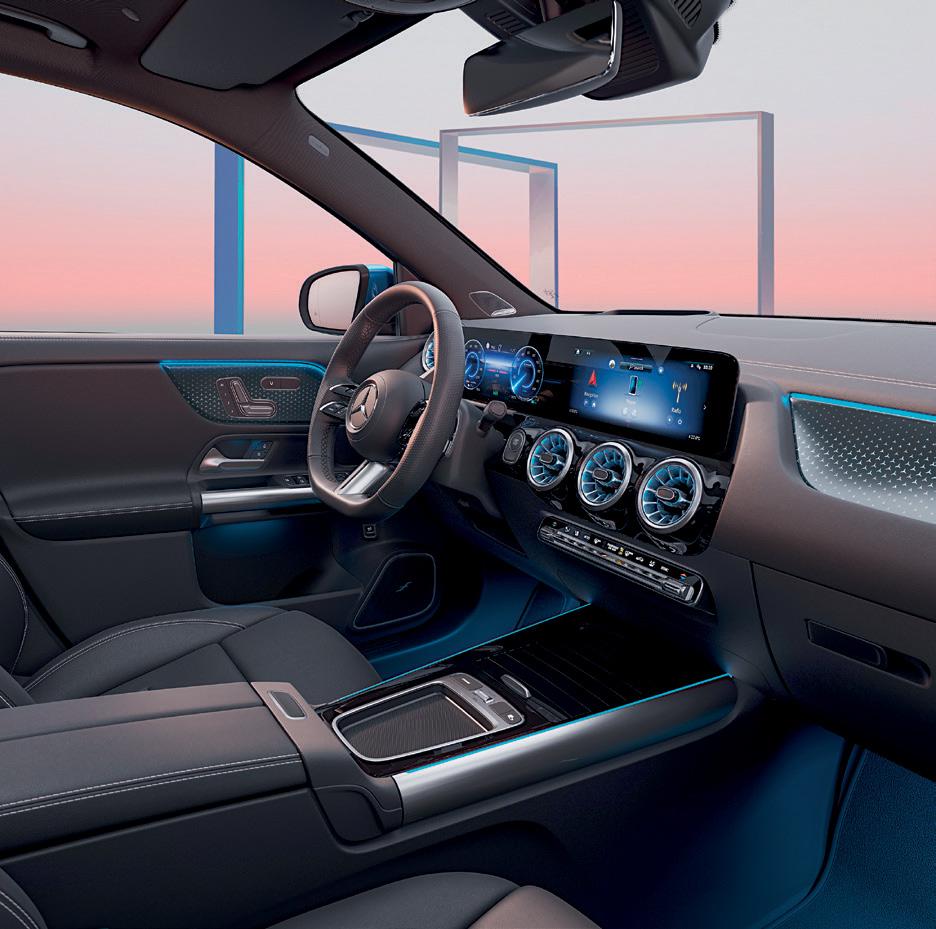
In addition, GAC has made some exclusive performance additions to the R Style, with faster gear shifts, improved stopping power, and a launch start mode. It arrives with a host of other features, such as hidden door handles, extremely spacious interior and trunk, a cockpit with dual digital control panels, car play and a wireless charging pad, for your phone.
Other technology features of Emzoom R Style include a 360 – degree camera, adaptive cruise control, and lane keeping assist to add to safety and comfort.
changed offer logic, the central display is now part of the standard equipment. The presentation of the charging features within MBUX has also been improved. By activating online services in the Mercedes.me app, the intelligent voice assistant becomes even more capable of dialogue and learning.
The optional Burmester surround sound system, in
conjunction with the newer MBUX generation, features the immersive Dolby Atmos. This gives music more space, clarity and depth. In addition, Dolby Atmos adapts to the playback environment so listeners can hear music almost studio quality playback.
Improved sensor technology includes a new monomultipurpose camera and a new backup camera.

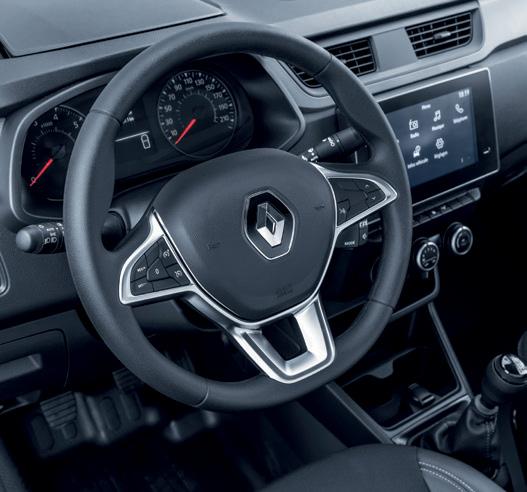
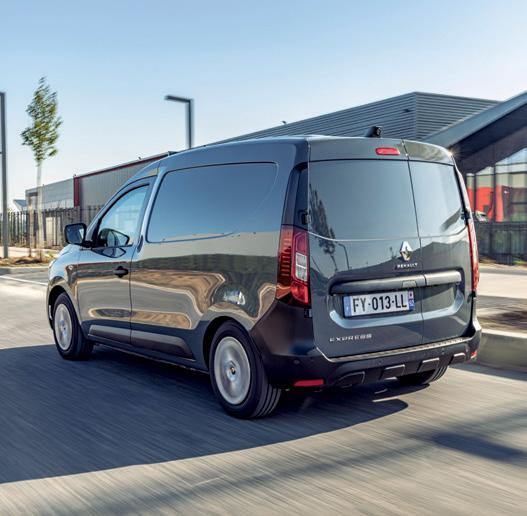
The concept of using a van has come of age in the Middle East driven by the popularity of last mile services and deliveries. Ten years ago, your choice was razor thin and mostly in the midand large- category. Think the Sprinter and the venerable Ford Transit Custom. That is still largely the case but you at least have choices from Peugeot and Fiat on the market, but until now small wheelbases have been mostly restricted.
Enter: the Renault Express Van, a commercial vehicle designed for various business purposes, particularly in the field of goods transportation and delivery. Like the Kangoo before it, the Renault Express Van is designed to be compact, which can be advantageous for navigating urban environments and tight spaces. It’s ideal for businesses that require frequent stops and deliveries in crowded areas.
One of the benefits of small vans is their fuel efficiency. Many commercial vans, including the Express Van, are engineered for fuel efficiency. This can lead to cost savings for businesses by reducing fuel expenses over the vehicle’s lifetime. In most markets, the Express Van often offers various customisation options. Businesses can configure the van’s interior to suit their specific needs, such as shelving,
cargo management systems, and more. Sharing DNA with the Kangoo and with its compact size, you can expect the Express Van to be generally easier to maneuver compared to larger vans. This can be crucial when navigating narrow streets, tight parking spaces, and loading docks. It goes without saying that with the small size you get limited payload capacity. This could limit the amount of cargo you can carry, which might not be suitable for businesses with significant hauling requirement. This is a vehicle for florists rather than lumberjacks then. In the interior, while customisation options are available, the overall interior space might still be limited compared to larger vans. This could impact the type and amount of cargo you can transport.
The Renault Express Van is powered by a fuel-efficient 1.6-litre engine, ensuring smooth and reliable performance on the road. With a generous cargo volume of up to 3.3 cubic metres, 191-metre loading length and a payload capacity of up to 750 kg, this vehicle is built to handle the demands of any business.
It boasts easy loading capabilities, thanks to its side sliding door with opening width of 716mm and rear doors that open at 180 degrees to facilitate
access to the cargo area. Additionally, the vehicle offers easy driving with cruise control and speed limiter.
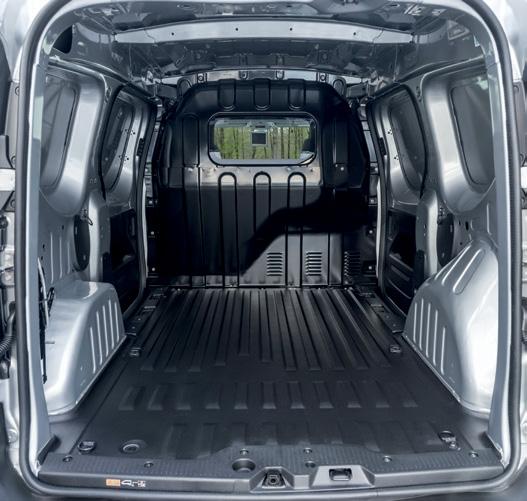
With the best storage volume in its class with nine storage compartments, the Renault Express Van sets a new benchmark for commercial vehicles, providing ample space for businesses to transport their goods efficiently.
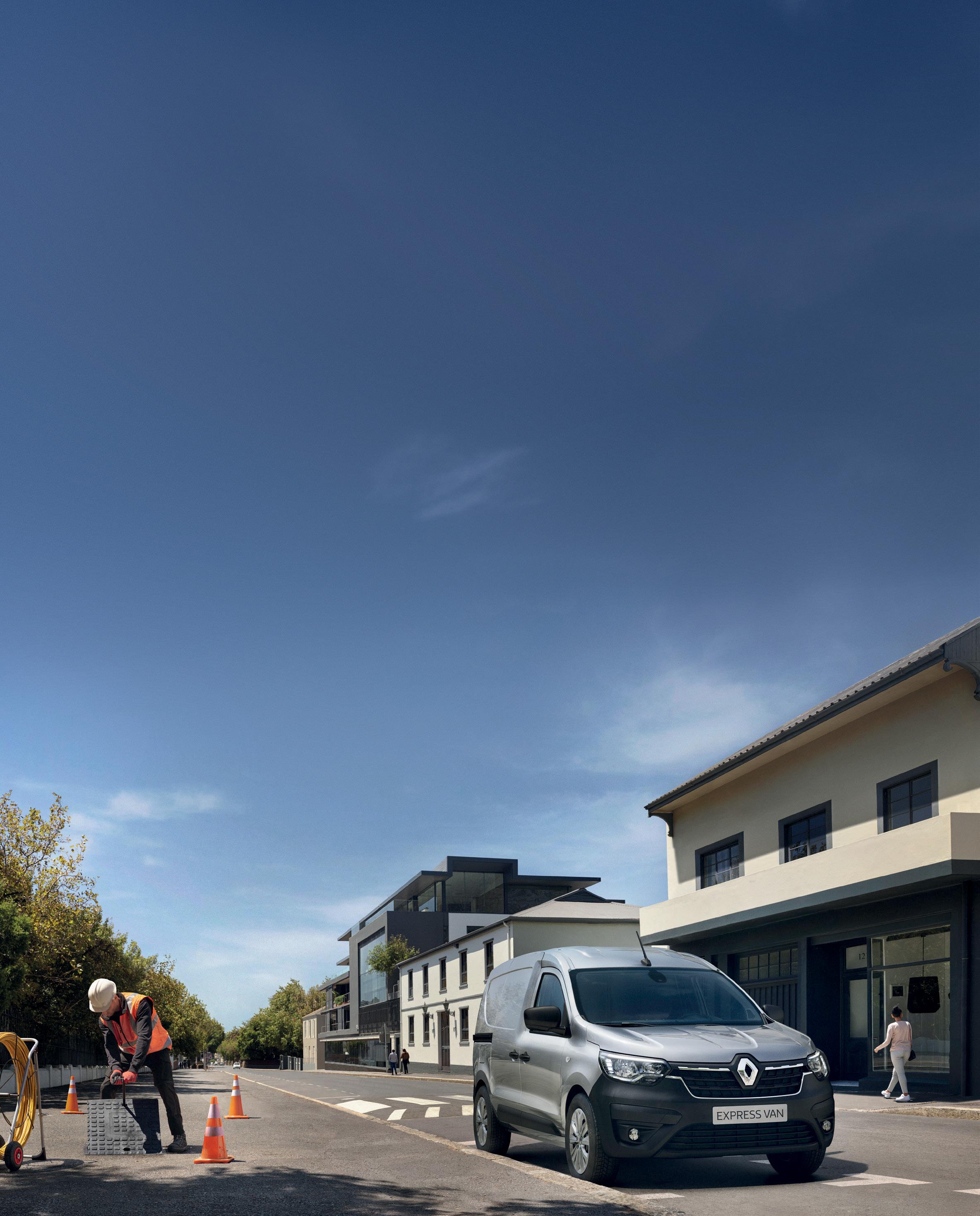
PROS
Fuel Economy
Excellent last miler
Highly customisable CONS
Limited load capacity
Stripped down interior
Available as a leasing option in the UAE, the 2023 Mazda6 2.5l is a powerful and pokey option – but stops far short of the Anniversary edition available in other markets. The top engine variants of Mazda6 have always had their fanatics for much of the range’s 20 year lifespan, even if the car has never fully escaped its reputation for looking like the vehicle equivalent of an album of easy listening Dire Straits covers. And that was before Sedans fell hard out of fashion. The 20th Anniversary edition that was brought out earlier this year is a combination of performance, style, and innovation in a way that only Mazda can deliver. Unfortunately, the version in the UAE leasing market is not that one. But there is some good stuff. Really good stuff. Under the hood, the 2.5l engine is a powerhouse that effortlessly merges power and fuel efficiency. The acceleration is smooth, and the responsive handling gives a sense of confidence on the road. Whether cruising on the highway or navigating through tight city streets, the Mazda6 performs admirably, providing an engaging driving experience that’s hard to match in its class or budget, especially in the grippy steering of Sports mode. Considering that renters will need to double their budget to get a BMW or Audi that matches its
performance, the Mazda6 also comes some way to match their interiors.
Slipping into the cabin of the Mazda6 feels like entering a luxury vehicle. The attention to detail is evident in every element, from the premium materials to the intuitively laid-out controls. The comfortable seats provide excellent support during long journeys, and the spacious interior ensures that both driver and passengers have ample room to stretch out. BUT. And it is a big but. You are not getting the infotainment set-up of the full fat version. Apple CarPlay and Android Auto are accessible via bluetooth. You also get a cd player – do you remember those? –and a usb socket. This would be cutting edge 10 years ago. It’s not now and the car does not have the touchscreen that even a Geely Emgrand – a full 1,000 AED a month cheaper – has on all rental models. Still, fans of sitting in calm quiet and enjoying a lack of screen time may see this as escapist fun as tbey contemplate the view from a windscreen which does not have the HUD which has been standard in other Mazda6s for a half a decade.
Nor does it have the comprehensive suite of advanced safety features that Mazda is now capable of. From adaptive cruise control to lane departure warning and automatic
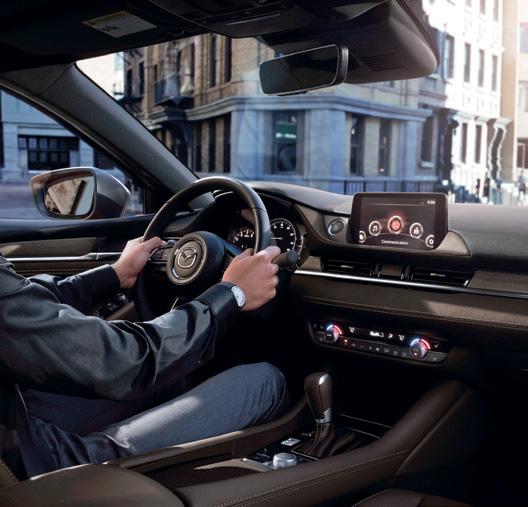
emergency braking, these are all missing. It does have a rear parking alarm and parking camera (low res and lowly lit on the rear view mirror).
While this a car for FWD sedan purists and considering its impressive performance, the Mazda6’s fuel efficiency is truly noteworthy. SkyActiv ensures that you’re getting the most out of each gallon of fuel, making it an excellent choice for both daily commuting and longer road trips.
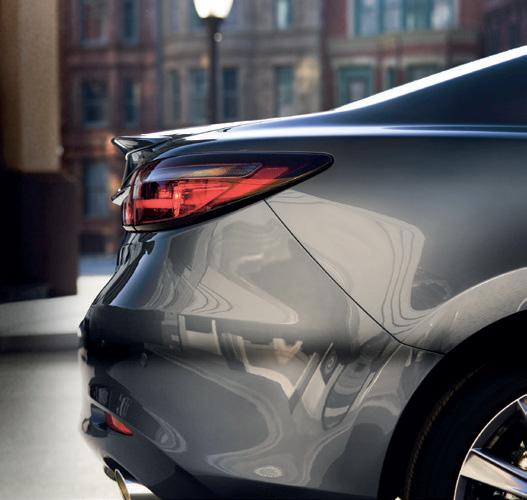
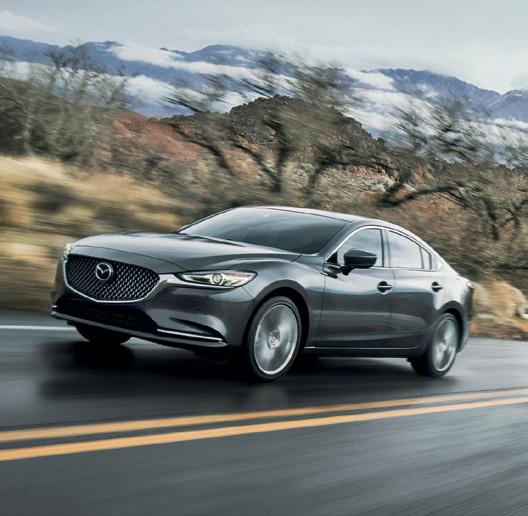
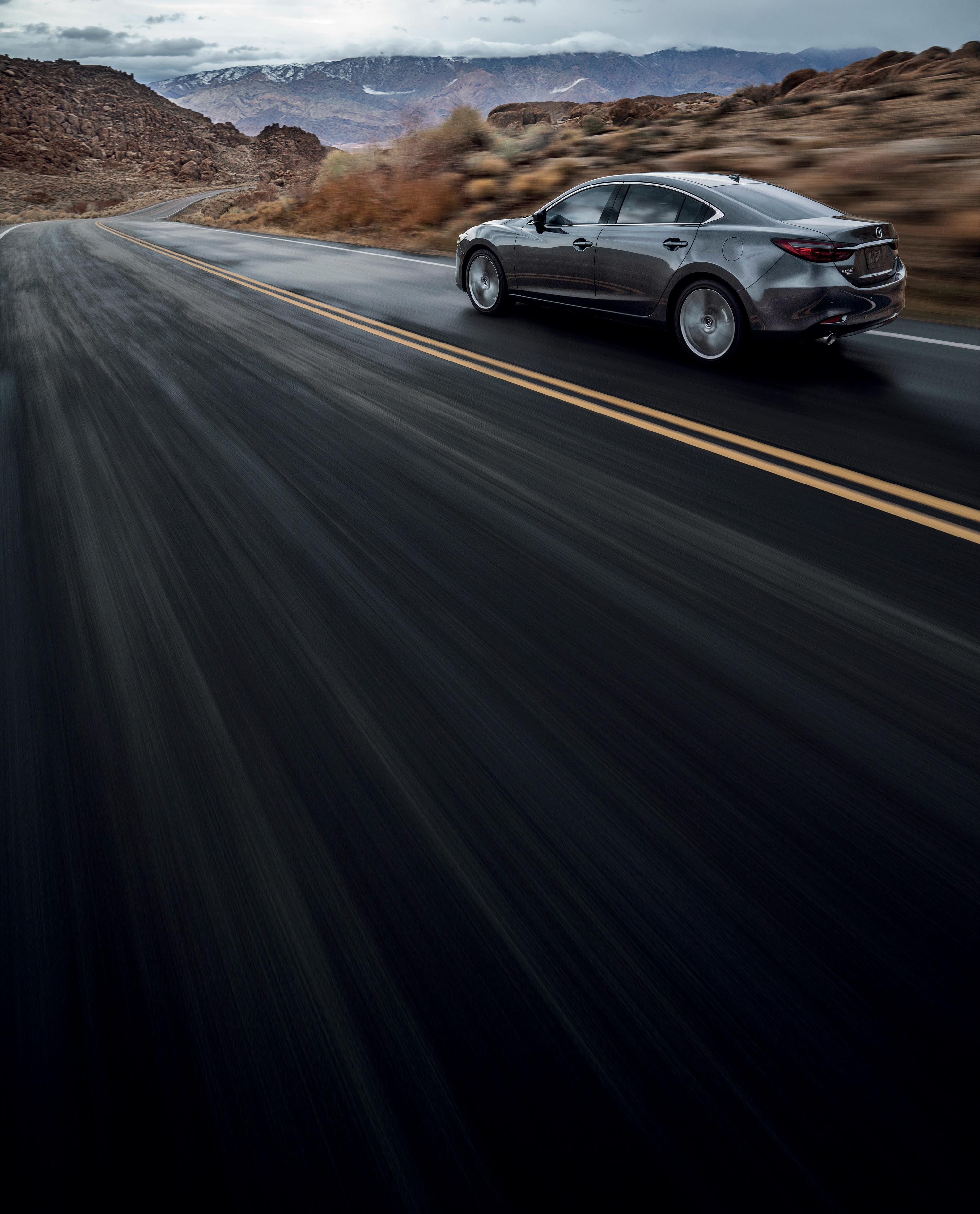
In the competitive midsize sedan segment, the Mazda6 2.5L stands out as a true gem in terms of its interior finish and power, as well as its price. This is a good option for rental fleets looking to tempt power drivers but some renters are going to be spending more time wondering if it was worth it.
Outstanding performance
Luxurious interior
Price competitive
CONS
Stripped of new tech
Better value out there
MAN Truck and Bus’ Joerg Mommertz talks to T&FME about why he is leading by example when it comes to getting the Lion close to customers
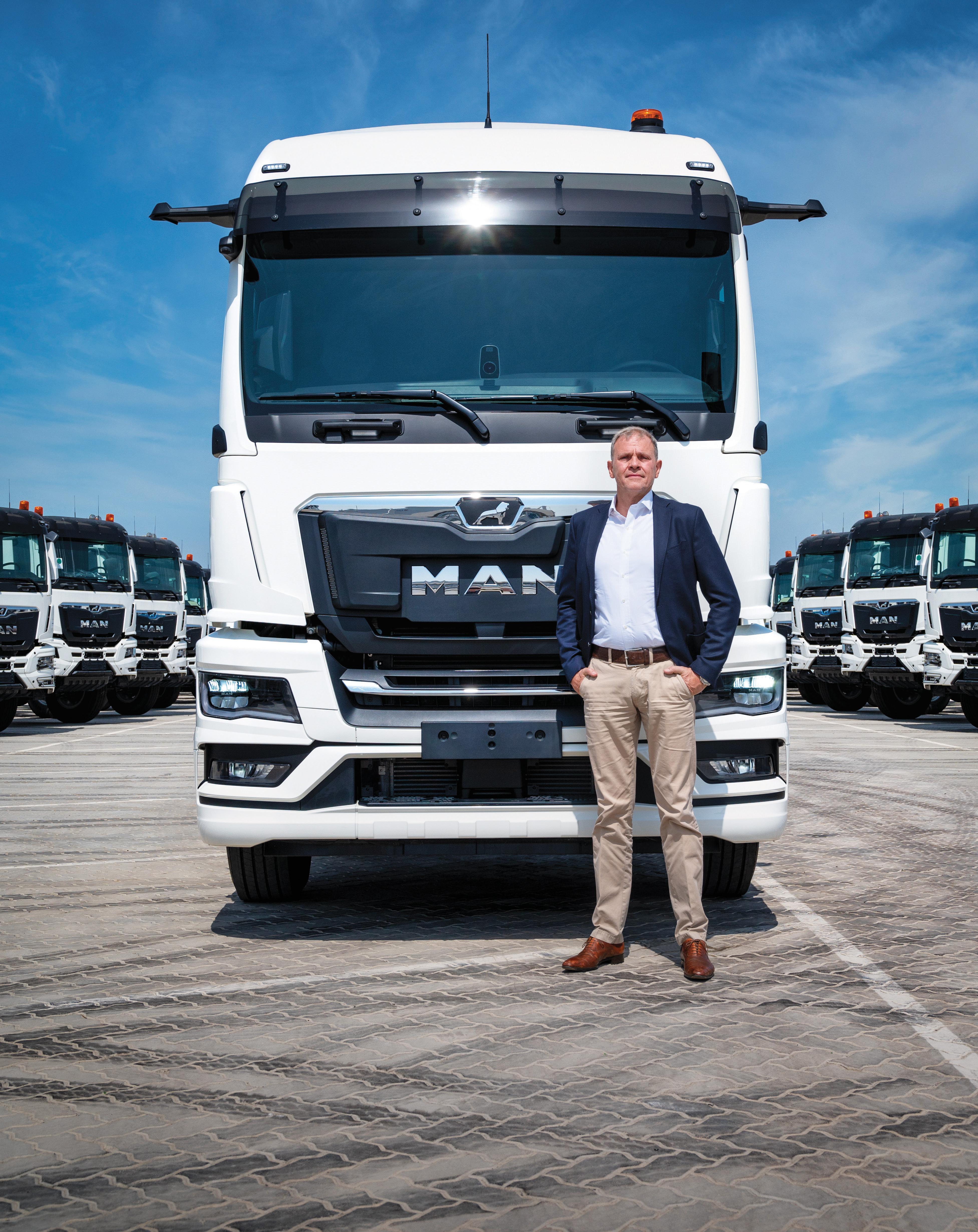
As commercial vehicles have become more complex engineering and digital marvels, MAN
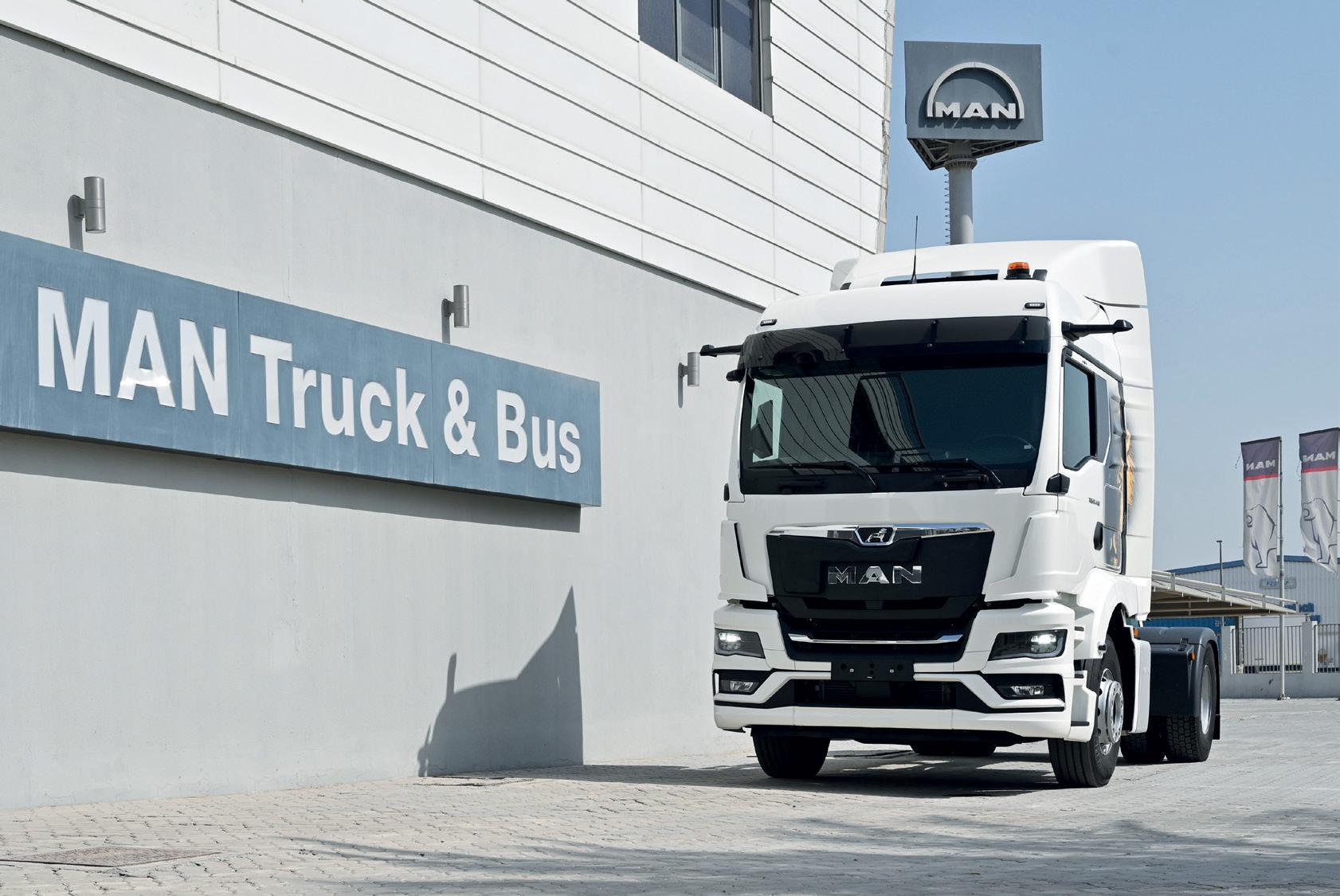
Truck and Bus has grown ever more determined to tell its fleet customers that the technology packed into each cab and chassis is there merely to make the lives of their fleets simpler. Let the truck and the services you invest in take the strain while you concentrate on your core business is the message coming out of the Munich-based heavy truck giant.
The man tasked with leading the effort to ensure that distributors help fleet customers across four continents to get the most out of their state-of-the-art vehicle is Joerg Mommertz, Senior Vice-President and Head of Middle East, Africa, Latin America, and CIS (MEALA&CIS) at MAN Truck and Bus SE. Energetic and engaging, Mommertz is always affably good company. These attributes have served him and MAN’s customers well since crossing over from the India operation almost half decade ago to take on his globetrotting role. It also defines the approach he wants MAN and its dense network of distributors to take in all the markets he is responsible for as they push to be ever closer to their fleet customers.
At the beginning of the last decade, MAN forged a deliberate strategy to bring its management talent over from its South African office to Dubai largely because it wanted to develop the Middle East as a sales territory and run the hard yards to build its dealer network. Fast-forward to 2023 and many of its rival heavy truck OEMs have scaled back their real estate in the region. The MAN story in the Middle East continues to evolve, even as others devolve and decouple.
Mommertz, however, remains an advocate for the MAN approach; expanding the importance of its Dubai operation as an international hub for multiple continents.
“This operation is not dependent on a single person. We are based on a strong team being close to our markets and Dubai is a very good example for that. You can’t manage business by one single guy or a few guys sitting in a headquarters in Munich. This will never work.”
He continues: “Dubai is now not only a support hub. We’re also creating some direct business into Africa and the CIS markets and developing market suitable products. Dubai is also acting as a training hub for the services we offer. Dubai, for instance, is now offering training to some nearby Asian markets - for example, we just hosted a delegation of South Korean mechanics. So, let’s say this is really now a service
hub inside our international business using the great location, good logistics and excellent working conditions we have. Taking a look at the geopolitical situation being somewhere offering easy travel is also quite important.”
Focusing on his last point, the discussion moves to the disruption to supply chains and the global economy the commercial vehicles market has been susceptible to. T&FME jokes that everything was fine until Mommertz joined four years ago.
“Sometimes crisis management is necessary,” he responds referring to an earlier interview during the height of the Covid-19 pandemic. “You asked me the question a couple of years ago, what is the future of the Dubai hub? Looking at the bottom line figures at the time, there was perhaps a reason to shut down, but this is absolutely not the case anymore. By taking cost cutting, restructuring measures and creating a more operational footprint for the organisation, we have significantly improved in our most relevant KPIs to justify such a large international operation.”
Coming out of Covid 19, the commercial industry found itself in the unusual situation of having to quickly scale up as pent-up demand outstripped its still recovering production capacity. Mommertz says he is welcoming a period where orders can be fulfilled on a timeline that is much closer to pre-pandemic levels. For the industry veteran, the challenges ahead feel comfortably familiar.
“We see some economic risk in China and everybody is talking about a possible
recession in Germany or in Europe. But this is the normal cycle of our industry and is not surprising to me at all. I’ve confronted (these challenges) several times in my career,”
“I was asked a couple of weeks ago, about how this compares to the economic crisis of 2008 and 2009, and it isn’t the same. Not at all. The output of the industry is back to pre Covid-19 levels. We still have some hiccups in the supply chain but they are less severe than in the past. We are working on our existing backlog and customers are back to getting the trucks they need as well as being happy to not wait or make an order 12 months in advance. I call it a ‘normalisation’ of the market,.”
For now, the way is clear for MAN to expand regionally. East Africa holds a lot of promise as does a strengthening in demand in the GCC particularly with one country seemingly tearing ahead: “Saudi Arabia is also a promising market, I do see positive signals here”, says Mommertz. “It is safe to assume that our main competitors (I don’t have to name them!) are also doing quite well in Saudi Arabia. So, we all get to benefit from the positive market development. So generally we have been very satisfied with Saudi Arabia this year and benefited from the excellent cooperation with our importers who are doing an excellent job.”
Saudi’s ambitious plan to diversify, modernise and open up parts of its economy and country has captured the imagination of many and concerned those with long memories of past construction booms that eventually crumbled. But the always-on-the-move Mommertz has
Best driver fit, best in class efficiency, the highest quality level with well performing and reliable products and strong partnerships, we are able to offer this to all of our customers in all transport segments”DUBAI AS INTERNATIONAL HUB MAN Truck and Bus Middle East’s Dubai office has evolved to become an support and sale hub for a number of key international markets.
seen for himself the work that is underway on the megaprojects of the Kingdom. This includes The Line, the 170km long city of the future and the beating heart of NEOM, the sprawling centrepiece of the Saudi Vision 2030 plan.
“This is amazing. I may have only seen one part: they were making the basement for the railway but I have never seen so many drilling stations for the construction…You can already see a bit of the Lion (the famous symbol for MAN) there too,” he adds proudly. “I have seen a lot, but this is the biggest construction site I have ever seen in my life,” he enthuses “I have seen one construction yard where they are just taking away a mountain: drilling, blasting, transporting. Trucks are being used for rubble removal, just transporting just the mountain off, taking the mountain away.
“I have never seen such a mix of all the trucks. Fleets got desperate waiting for new
trucks and started searching globally for use trucks from wherever they could.”
While he sympathises with fleets rushing to get their hands on ageing or under-specced vehicles to secure contracts from the Saudi government or major construction companies, Mommertz sees this as only a short-term fix when you consider they are working in one of the harshest environments on the planet.
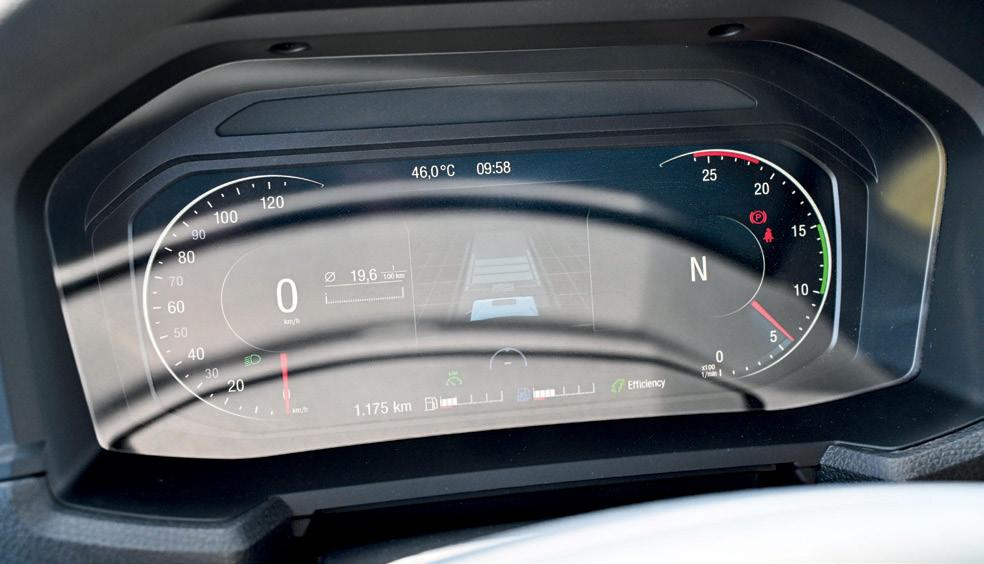
“Some customers told me, that they are keen on using European trucks like MAN because of our good service and maintenance skills,” recalls Mommertz, adding that these fleets could struggle without the support they would otherwise be guaranteed. “When you’re in the middle of nowhere having a guarantee of support is at its most important.”
With many years of construction yet to come Mommertz says that MAN is well-positioned to serve the booming
market as lead times reduce because the customers will need cutting edge and efficient technology to meet demanding schedules.
“I’m listening to the management of these megaprojects and all the other governmental institutions and of course you have to discount some of the huge numbers quoted but even after that it looks promising, and customers are always going to be very satisfied with the performance of our trucks under these rough conditions, and very satisfied with the support and the service they get from our importer.”
It has been two years since MAN Truck & Bus launched the latest generation of its award-winning TG Range in its largest sales area, covering the Middle East, Africa, Latin America, and CIS. At the time, MAN was praised for its determination to place customer


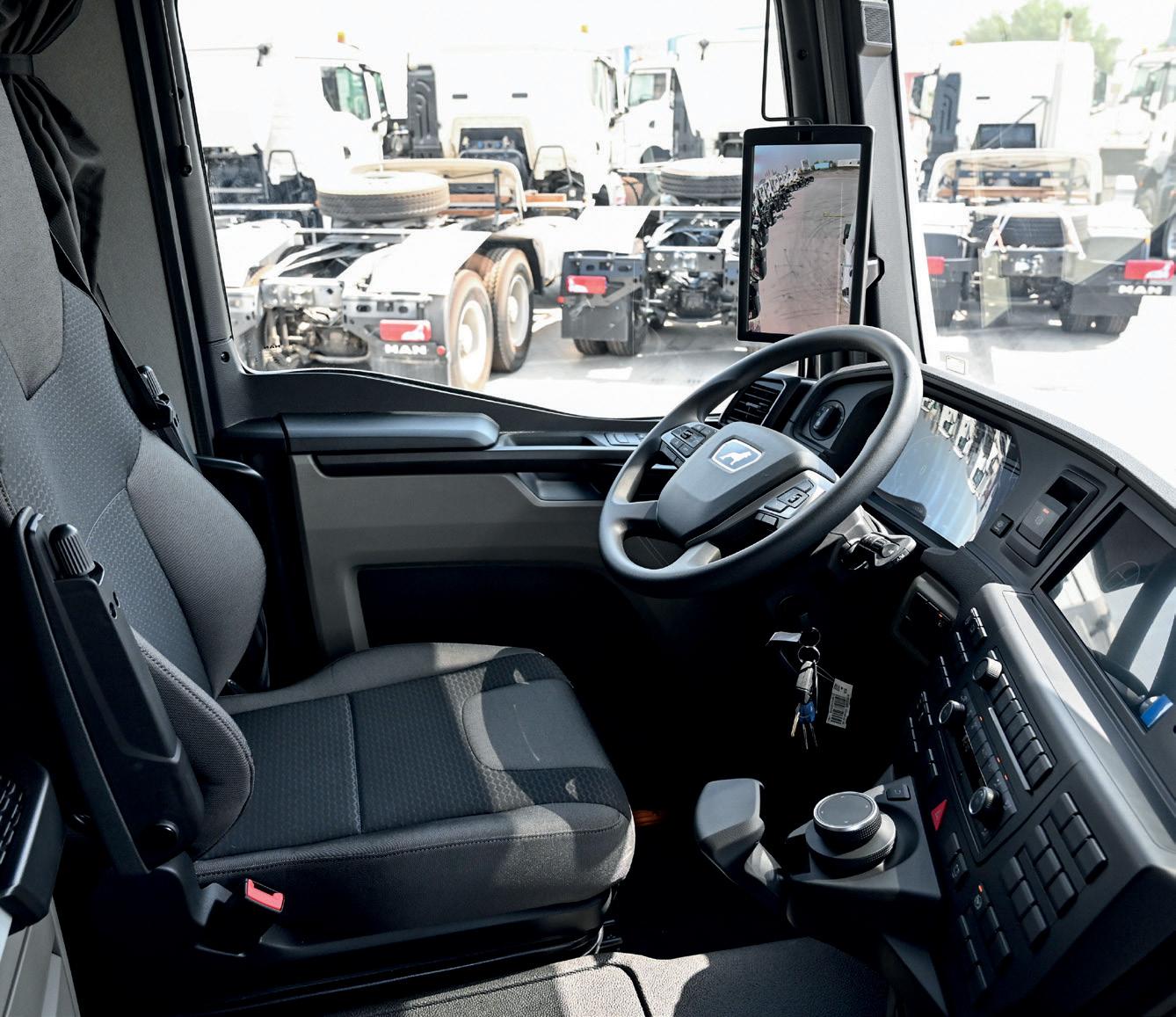
We are a full product provider.
With our heavy trucks, the customer can get everything from one hand”A STRONG PARTNER The first new MAN truck generation in two decades, TG range boasts excellent driver fit, great efficiency and economy features, optimised uptime, and make for a strong business partner.
feedback at the core of the design of the range.
Mommertz says that the newest ‘Lion’ has been well-received in the market and feedback from the field bears out a promise to offer the highest levels of reliability and efficiency, optimal uptimes for fleets and decent TCO (Total Cost of Ownership).
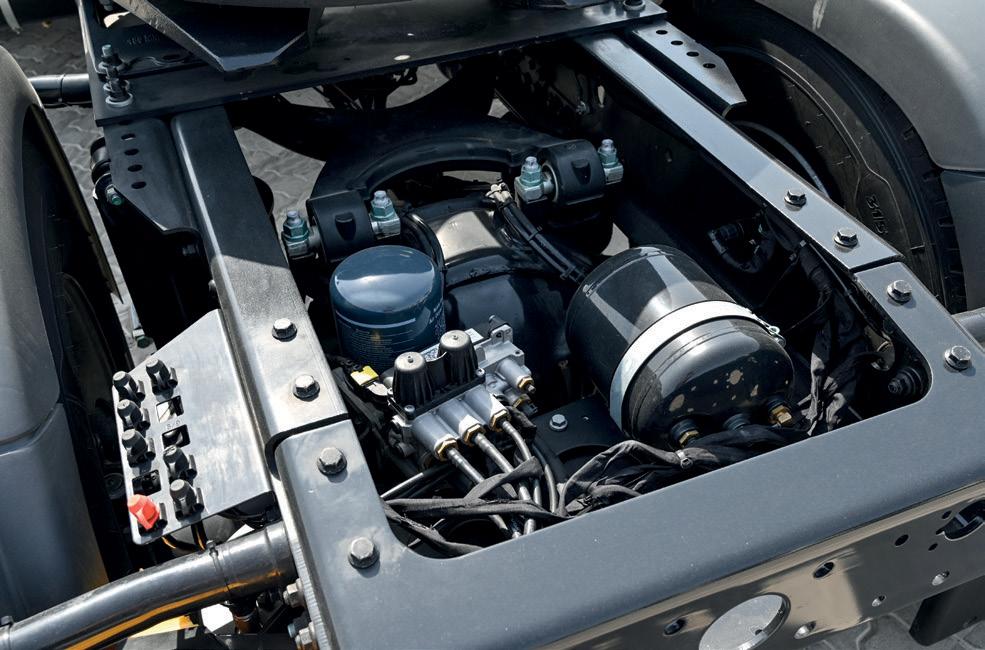
“Best driver fit, best in class efficiency, the highest quality level with well performing and reliable products and strong partnerships, we are able to offer this to all of our customers in all transport segments,” he says, adding that the TG enables MAN’s importers to offer their customers the best transport solution based on the local market conditions.
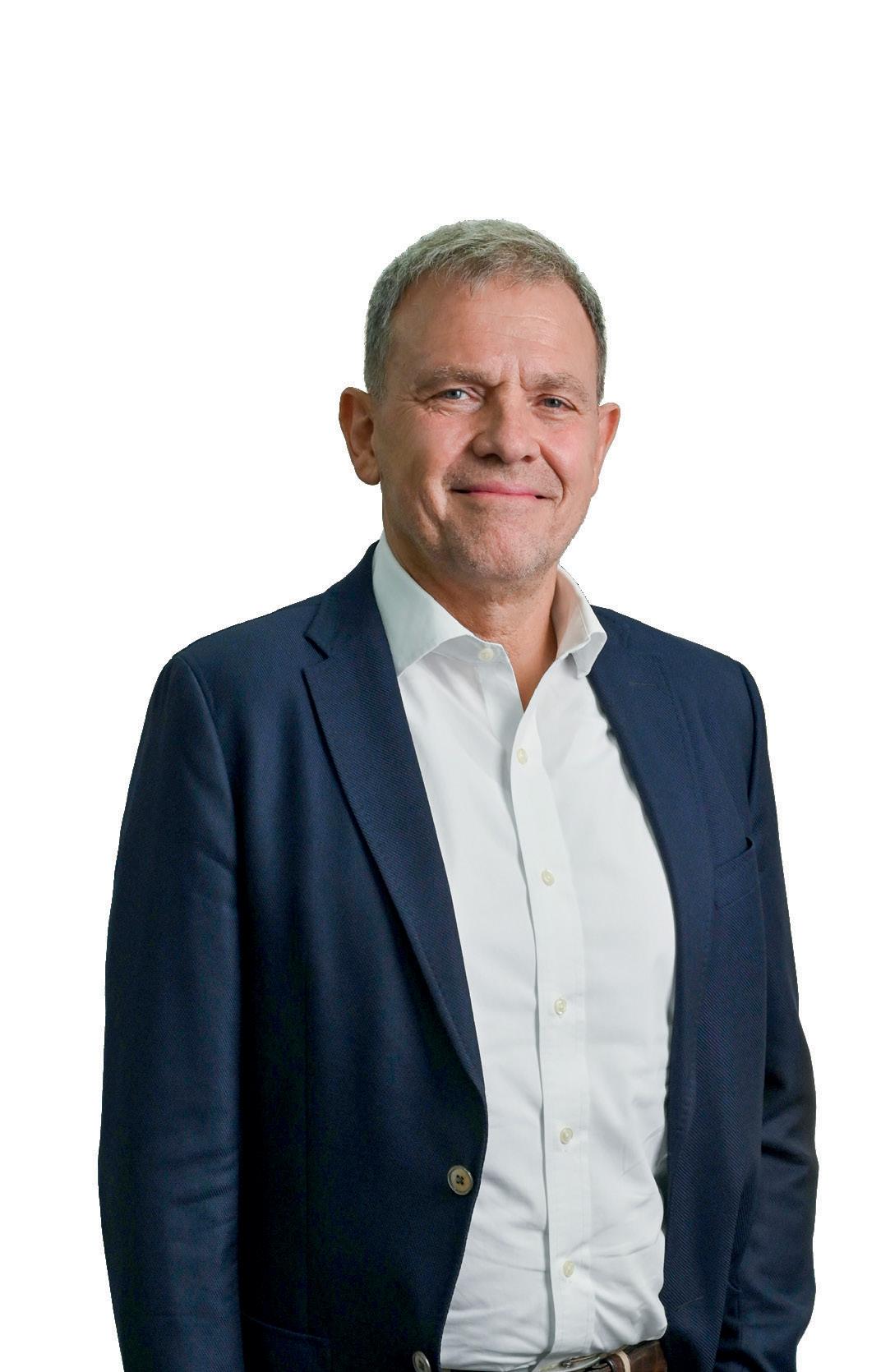
“We are a full product provider. With our heavy trucks, the customer can get everything from one hand with our partners supplying him with hardware and the necessary state of the art service solutions,” he affirms.
The design of a truck platform has traditionally been expected to last a decade or more. The TG represents the refinement of truck design at a time when the industry is wondering whether the next generation of commercial vehicles will predominantly use electric or other alternative power sources to move goods from A-to-B. MAN has made its own moves into both electric and hydrogen vehicles – with a strong focus on BEV – but remains determined to optimise current diesel power as much as the laws of physics and economics will allow. It is the only truck-maker to still offer engines that conform to emission norms ranging from Euro 2 to 4, 5 and 6d and prefers to focus on offering significant pay-load advantages while lowering the burden of servicing and maintenance on fleets. Mommertz believes that the company got its priorities in the right place with the design of the TG range and it will deliver on its promise of simplifying fleet operations.
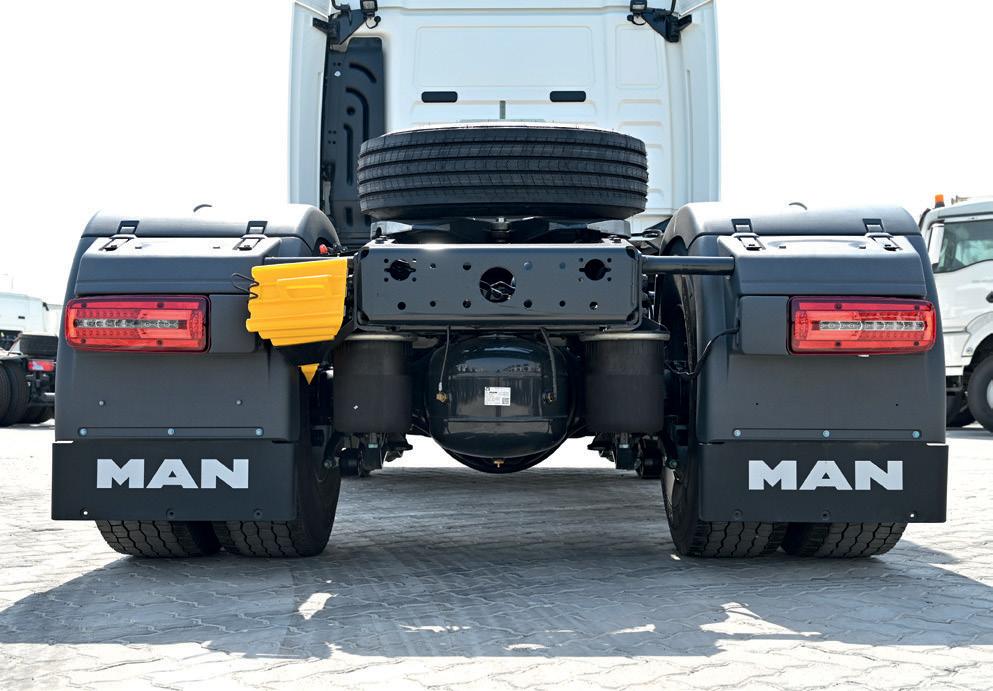
“We’re (the industry) talking a lot about mobility in the future, but our ambition is that while there is a need for internal combustion engine, we want to offer the customer the best when it comes to efficiency and reliability. We have spent a lot of effort to improve, again, fuel efficiency and uptime for the customer because it (the truck purchase) has to fit a business case for right now.”
As you would expect from MAN, the new generation of MAN TGX, TGS, TGM and TGL, offer the leading edge of gadgets for safer driving and Mommertz proudly
provides a long list of them such as MAN Lane Change Collision Prevention Assist, Emergency Brake Assist (EBA) – which is mandatory in Europe, MAN AttentionGuard attention warning system (which detects unsafe driving and warns the driver visually and acoustically) and its superb Adaptive Cruise Control (ACC Stop & Go) system which automatically controls the speed of the truck as well as the distance to the traffic ahead.
“All the safety features are the state of the art,” he says, adding that the company is seeing higher demand for features that keep vehicles on the road for longer. “Customers know what it
means to run a fleet day by day with thousands of kilometres every month, and they know safetyrelated equipment on the truck reduces the total cost of ownership and guarantees higher uptime.”
He continues: “You still have customers not taking care of the quality of life for the truck driver. This is the reality everywhere not just in the Middle East, but I do see a general trend here for better equipped vehicles that place the driver as the brain inside the truck. We also see more understanding of what I call the entire ecosystem of service, parts availability, the availability and the reliability of the truck, as well as understanding that telematics solutions can help the customer to improve his daily business operation.
“Coming back to the basics, having the best – and we are very confident we have best in class running vehicle in all aspects – reliability, efficiency, uptime, TCO, and not forgetting a truck which our customers and their drivers love. I also believe we have the best-in-class network when I look at the density and the quality of our network in the Middle East countries. We are close to our customers where and when the customer needs us.”
He concludes: “And this is leading finally to us simplifying our customer’s business in all aspects with today’s technology. The technology we have already today, and the technology creating the future will always offer the customer a positive business case. New technology doesn’t make sense and gain acceptance, if the customer doesn’t see a business case.”
There is undoubtedly a different speed between the EV car and truck business, no doubt about that, but everything depends on two key facts: the availability of green energy and the charging network. They are deciding the speed in making a business case for the customer. We had an interesting dialogue with a highly regarded international analyst a couple of months ago and he
showed us a global map based on different facts, such as the availability of green energy, the cost of conventional energy and the readiness of the government to spend some money on incentives, the charging network, etc. We will see a different speed here compared to other markets and then in parallel to that, we’ll see Africa take an even longer time. In terms of the potential for alternative drives, such as hydrogen, or autonomous driving… everything depends on a lot of basic facts, but the availability of a charging network and the economic impact of the drive type are deciding the pace of electric vehicles.
We are based on a strong team being close to our markets”
2023 has been a busy year of major announcements for electric commercial vehicles in the GCC, not least the deal struck between Peugeot Middle East and DHL Middle East in March, which has welcomed the first ever fully electric fleet of Light Commercial Vehicles (LCVs) to the region.
The Stellantis Group-owned French brand is currently the only automotive manufacturer in the Middle East to offer fully electric LCV Peugeot e-Partner and e-Expert vans. Peugeot says it wants to lead the market in electrification and carbon net zero automotive products while exceeding the expectations of its customers. With the DHL deal now public, Yury Duzhnikov, Head of French Brands at Stellantis, talks to T&FME’s Stephen White about the partnership’s origins and its importance to the wider delivery market.
Yury, I am sure a deal like this doesn’t happen overnight?
Indeed, DHL has been a valued long-term partner for Peugeot for many years, with our discussions naturally shifting towards electric vehicles (EVs) over the course of our partnership. When Peugeot confirmed the launch of a range of electric light commercial vehicles (ELCVs) back in 2021, DHL and Peugeot embarked on a collaboration to bring these vehicles to the Middle East.
Both Peugeot and DHL are committed to achieving net-zero emissions – this partnership is a testament to that shared goal. While our collaboration began a while
ago, external factors such as COVID-19 and the need for testing delayed our longawaited partnership. Only once our R&D had confirmed the vehicles’ performance, especially after having been tested in hot weather conditions, were we able to proceed and supply DHL with the fully electric LCV fleet. Today, we are proud to say that we’re the first and only brand to offer electric light commercial vehicles in the region through our partnership with DHL.
This is all so exciting, but testing over the summer months must have been nerve-wrecking?
The testing phase was crucial. We had to ensure that the vehicles’ range wouldn’t be compromised and that the batteries would not overheat, considering the region’s unique climate. Additionally, thorough testing was carried out to ensure the air conditioning units functions properly. Once we had confirmed that all these aspects were up to standard, we were confident in bringing the vehicles to market.
You mention training for drivers. My experience of electric vehicles is that they seem easier to drive?
Our training isn’t only focused on drivers’ ability to adapt to the vehicles’ measurements etc, but also on familiarizing them with the recharging process. Also, in order to stand out from internal combustion vehicles, we have added several new features such as cruise control and Apple CarPlay to give that ‘electric experience’. This is so that drivers are comfortable in the LCVs and choose to
switch to electric vehicles over time. There is expectation in this market that decisionmaking is be top-down in terms of purchasing but, quite often, it is the drivers themselves who are actually upselling. Their feedback is therefore extremely important. Our aim is to ensure that drivers are not only comfortable with EVs but also enthusiastic about making the switch so that they become advocates.
Coming back to the DHL partnership itself, what do you feel will make this work?

People and common goals. Peugeot’s relationship with DHL is testament to our commitment to Stellantis Group’s Dare Forward 2030 strategy. It is a global partnership, not just a regional one. This alignment has already yielded several successful projects, as seen with our sister brand, Citroen, in Singapore. Our continuous collaboration with DHL involves regular reviews of deployment progress, ensuring that our partnership goes beyond just integrating the vehicles into their fleet. Challenges are addressed through joint solutions, fostering a dynamic that is essential for pioneering initiatives like ours.
Does being a pioneer or guinea pig bring added pressure?
Being a pioneer means additional pressure to succeed and ensure flawless execution. Leading the charge always takes extra time and effort to provide the very best, no matter what sector you operate in. However, having the right products significantly eases the process. We took the time to
On a global scale, at Stellantis Group, we’re looking at the concept of energy transition. So, whilst electric vehicles is the first step, we’re not stopping there. We’re looking at clean fuel”

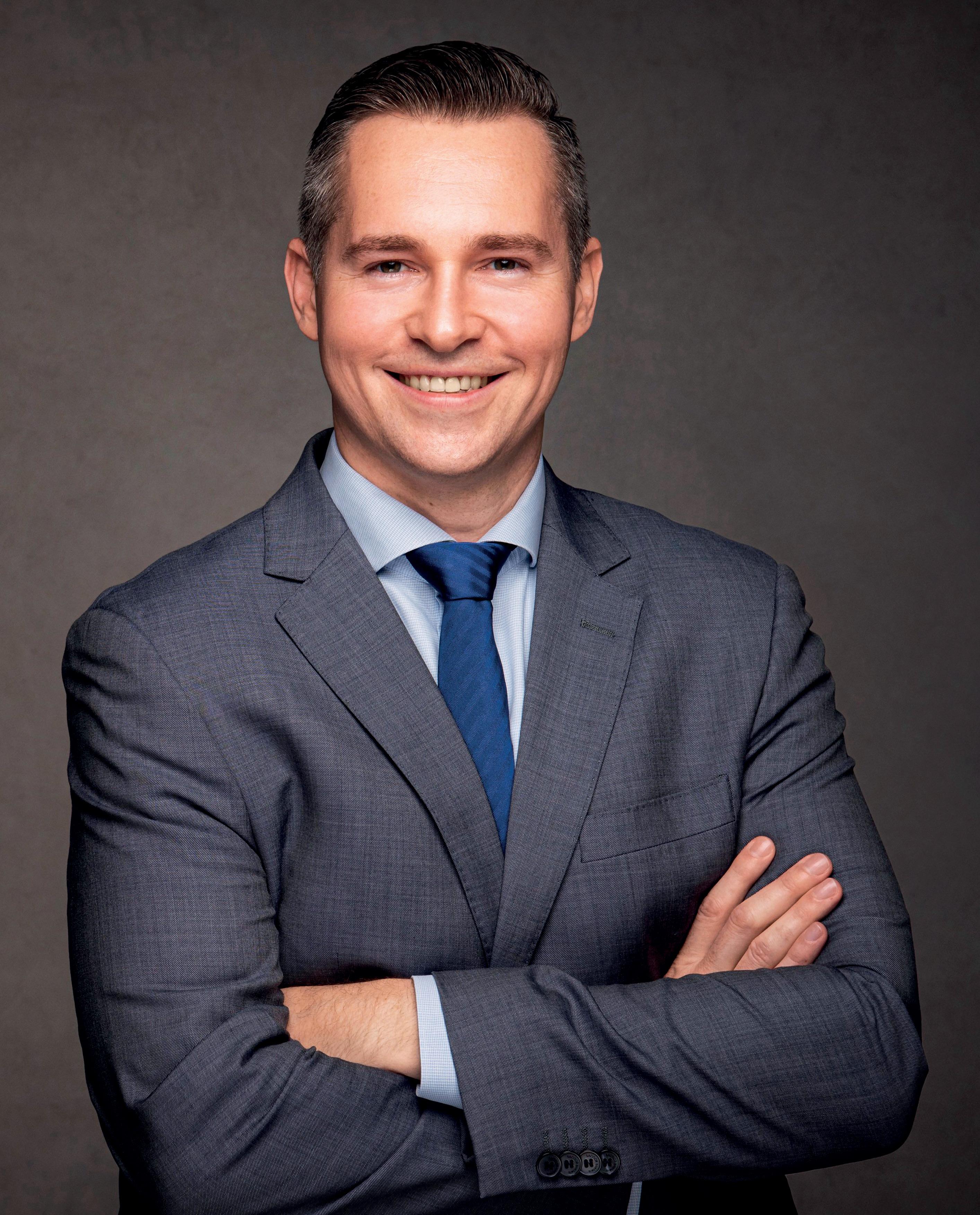
thoroughly develop our vehicles to make things as simple and effective as possible for our customers. Extensive hot weather testing was pivotal to this, allowing us to confidently stand by our offerings.
We’re talking about driver training, getting used to charging. There’s always that concern about range anxiety. Being a pioneer means additional pressure to succeed and ensure flawless execution. Leading the charge always takes extra time and effort to provide the very best, no matter what sector you operate in. However, having the right products significantly eases the process. We took the time to thoroughly develop our vehicles to make things as simple and effective as possible for our customers. Extensive hot weather testing was pivotal to this, allowing us to confidently stand by our offerings.
Now, that would be great...
Yes, this would completely remove the range anxiety that a lot of people have when thinking about recharging their vehicle.
You’ve done the trialling and you’ve made this announcement, so what happens from this point?
The Peugeot ELCVs are already on ground, and we have more in production. The next step would be to regulate the size requirements to be functioning, in terms of volume, and urgent parts replacement. We expect the challenges will revolve around infrastructure. We partnered
with the likes of Siemens to support the end-customers with the transition.
Charging infrastructure is the big limitation, isn’t it? Dubai, for instance, has got quite ambitious targets for EVs, but they need to get the charging infrastructure in place. Exactly. This is why Peugeot wants to focus on the B2B segment because we know that vehicle charging can easily be done at the office or at a depot. We can install charging stations for a relatively low cost. For many B2B cases, if you install a simple AC charger at a depot or in the parking lot costing AED 3,000, you support and encourage adoption. This is why we’re working with Siemens to develop smart EV charging
infrastructure technologies for the Middle East. The partnership includes creating packaged solutions for customers, and the electrification of Last Mile delivery services in Middle East markets. Our belief is that if people can charge their vehicle at the office or at depots, the infrastructure will come to market quickly.
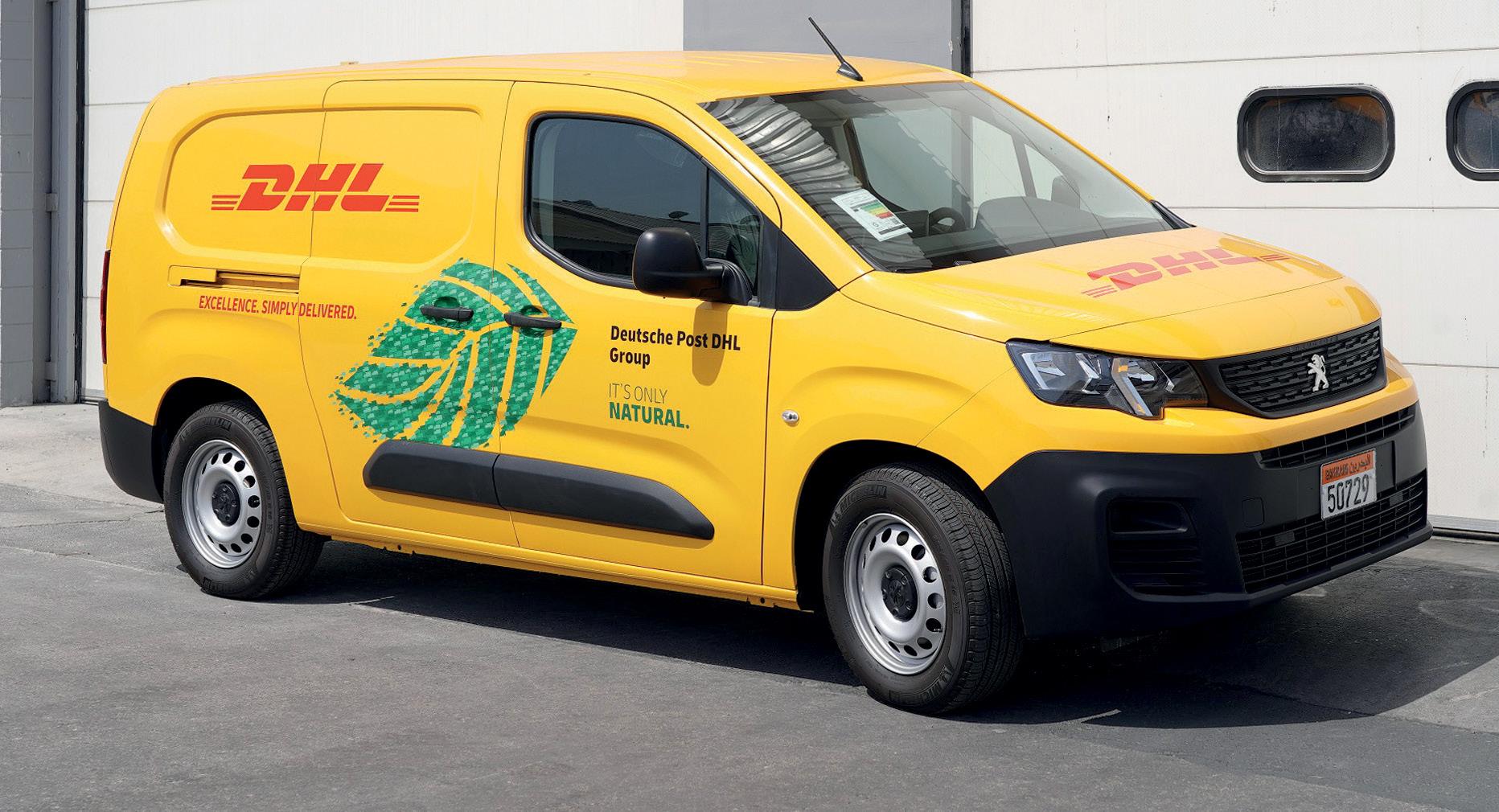
Maybe the barrier to entry isn’t quite as high as some people think it might be?
Being part of the Stellantis Group allows us to leverage synergies and cooperate across brands, so that we can meet customer needs and shape the future of mobility. As such, we capitalise as much as we can on the way that other parts of the world are going through energy transition. Europe is already at 100% adoption and in North America, that figure is around 50%. Peugeot’s experience in other parts of the world gives us valuable insights that we can learn from and apply to markets across the region. We don’t just look at the customer, but dealers as well; we educate them to understand the potential of these vehicles. We’re focusing on the customer experience journey, which is where they transition from the regular retail model to a marketplace model. Customers nowadays care about services and solutions, financing, insurance, and how to sell, so the cars themselves are becoming more connected. We recognise the importance of the overall experience and so offer comprehensive solutions.

We have added quite a number of creature comforts into the vehicles to give that ‘electric experience’”A REGIONAL ROLL-OUT The agreement with DHL will see a fleet of fully electric LCV Peugeot e-Partner and e-Expert vans operational in the region, with the first vehicles on the UAE’s streets before being rolled out in other regional markets including Bahrain and Jordan, followed by Saudi Arabia, Kuwait and Qatar. THE ROAD TO FULLY ELECTRIC Fully electric LCVs create zero noise, zero emissions and zero odour, contributing to healthier urban environments. all models in the Peugeot line-up will be electrifie. By 2030, 100% of Peugeots sold in Europe will be 100% electric.
You’ve been working on this for three years and now you’re finding yourself caught up in a wave of COP-28 interest. How does that feel? Being at the forefront of greener transportation supports Stellantis Group’s commitment to carbon emissions reduction. Our efforts also align with urgent climate change needs. Contributing through partnerships, actions, and collaborations gives us a sense of purpose as we work towards a more sustainable future.
I suspect people will want to learn a lot from what you’re doing. Are you sensing a movement towards greener mobility in the market?
Definitely. We’ve taken the first step by bringing the electric light commercial vehicles to this market through our partnership with DHL. Companies have started to recognise the need for the change. The perceptions have moved from being sceptical about technology to: “How can we implement?”. Previously, it was: “We don’t even want to discuss,” whereas now it’s: “Okay, how?” That is where we come in with partners like Siemens to bring a 360 solution that explains the benefits of transitioning to EVs over long term. For example, operational maintenance of electric light commercial vehicles is just a fraction of the internal combustion vehicle. Imagine being in the shoes of companies that are doing 200,000-300,000km, who find out that maintenance costs, which grow every year, are nothing when it comes to electric vehicles because the components are clean. Add to that the rising cost of fuel, even in places like the UAE, and it becomes even more financially viable.
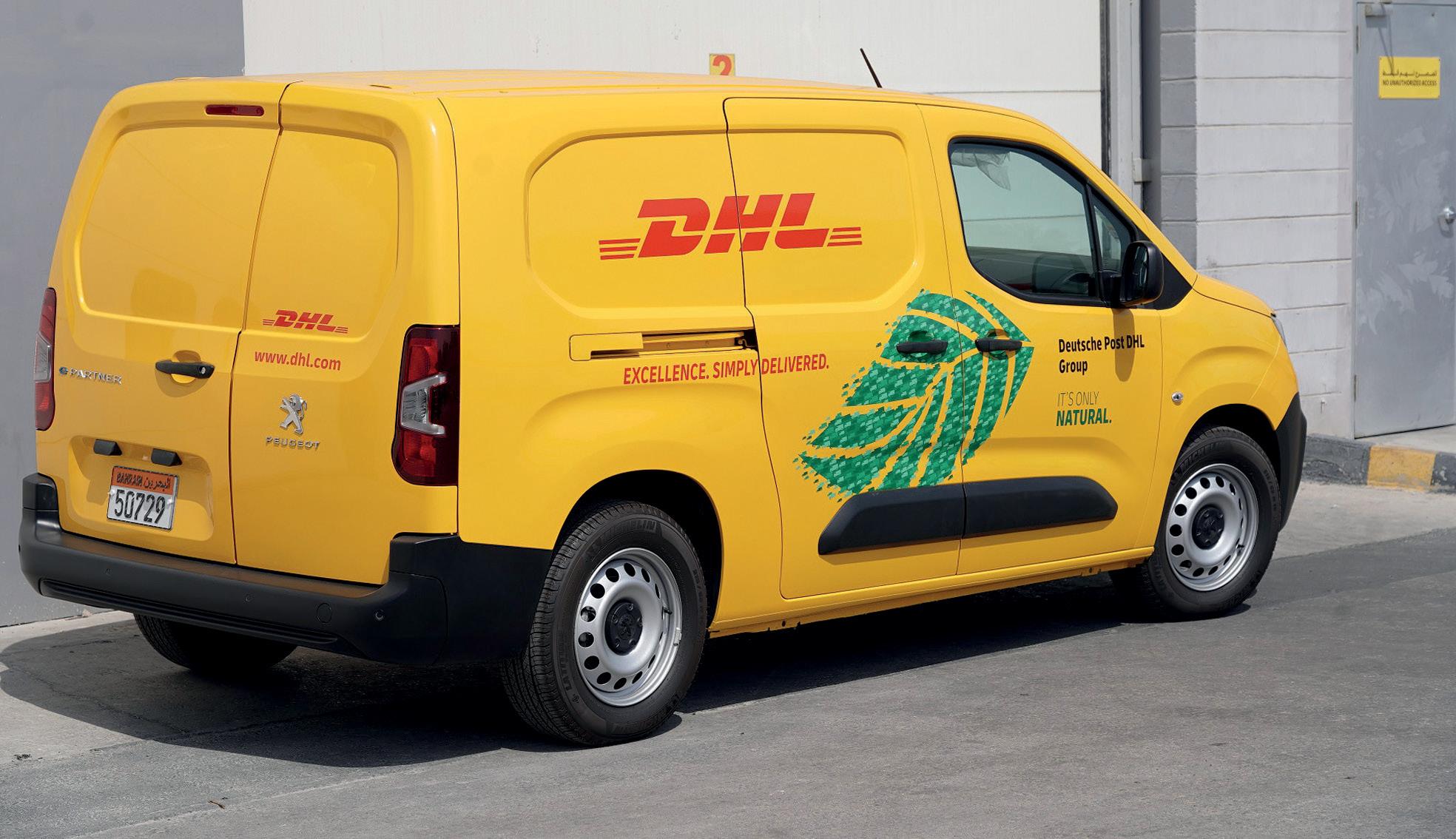
Do dealers worry about losing revenue as EVs require less frequent maintenance?
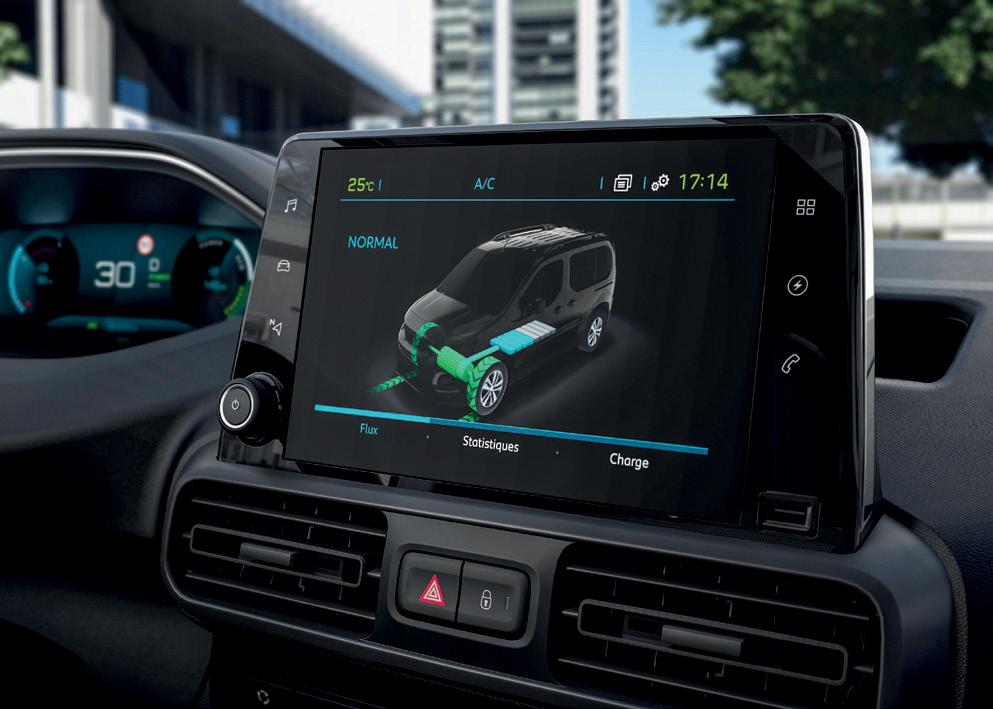
Not at all. The focus is shifting toward diversifying services and solutions. So, it’s not just about vehicle transactions anymore; it’s about identifying additional revenue streams that can be created by integrating electric vehicles into the ecosystem.
How do you think we can ensure that we see faster growth in electric vehicles, particularly in the professional fleet market?
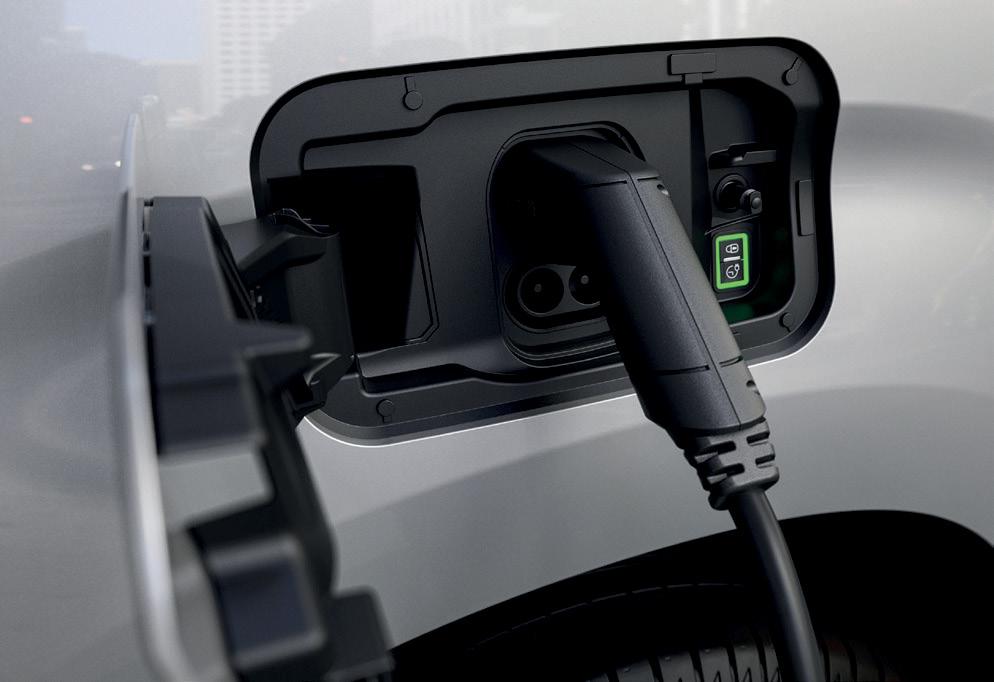
Affordability is key, as is the long-term viability in terms of financing. Of course,
you also need the availability of clean energy. It’s very difficult to employ electric vehicles in countries where their grids are not set up properly. Fortunately, we don’t have this problem here. Another key element is, of course, infrastructure. This is where, while different regions are progressing at different speeds, we need to recognise that the momentum and progress exhibited by markets such as the Middle East go at their own pace. In the Western world, we have rapid development, but that comes also with risks such as raw material scarcity, inflation challenges, that could delay implementation, which you normally don’t get in the Middle East.
Globally, Stellantis Group is looking at
the concept of energy transition. So, whilst electric vehicles are the first step, we’re not stopping there. We’re also looking at clean fuel and of course, hydrogen fuel cells. So, there’s a lot of waiting. We can implement this - the technology’s adopting as we speak. Also, while we’re focused on electric vehicles, there’s also the chance that we’ll go back to internal combustion engines later down the line because we’ve developed hi-tech engines and fuel that have zero emissions.
One particular solution that seems to have some promise is the hydrogen conversion of the internal combustion engine. For some applications like long haul, it seems like a really good option. This is where a lot of our investments are going. Hydrogen fuel cells offer great promise and we’re actively integrating them into our commercial vehicle lineup. Despite infrastructural challenges, global initiatives are underway to pioneer this technology, which we’re evaluating the feasibility of to bring to our markets.
While it’s important to talk about EV, internal combustion engine and hydrogen fuel cell initiatives in play, connectivity is also an important part of our strategy. You mentioned dealers earlier – ours are already accepting the transition. Data is another important factor when it comes to products and services as we can use data to support B2B customers and give them better routes. Connectivity is something that we’re focused on and looking to bing more of in the coming years.
The perceptions have moved from being skeptical about technology to, “How can we implement?”BOLD TARGETS Peugeot recently announced its PEUGEOT E-LION PROJECT twhbich positions it as an EV brand. It says it wants to deliver on bold targets for electrification in the Middle East.
T&FME scans the latest reports to see where the regional commercial vehicle market is heading
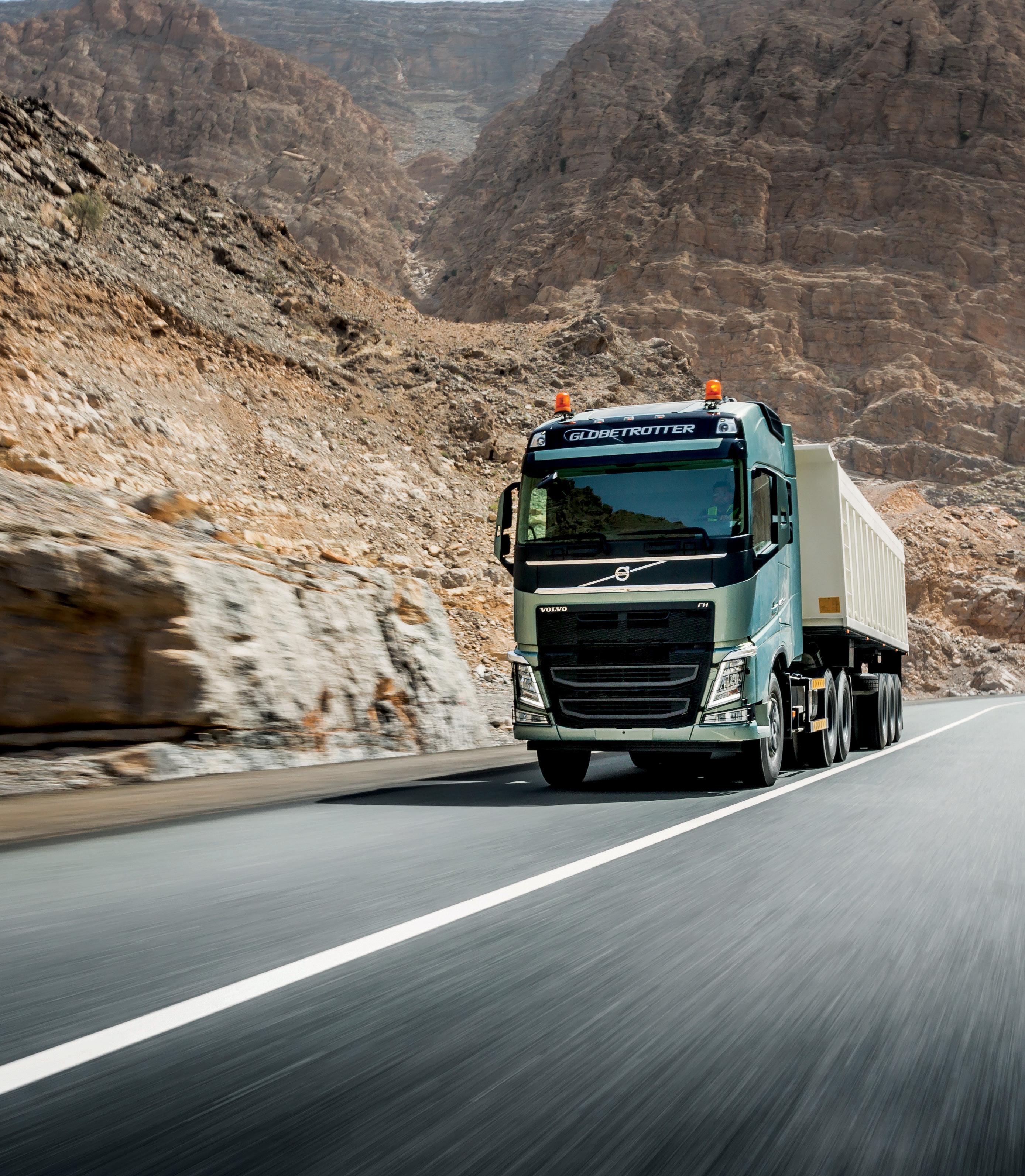
The Middle East & North Africa Commercial Vehicle market was valued at USD 25.25 billion in 2022 and is expected to register a CAGR of 8.67% during the forecast period of 2023-2028. According to its latest report, ResearchAndMarkets.com says the Middle East and North Africa Commercial Vehicle market is growing owing to the rapid infrastructure development projects that are initiated by the government, which led to an increase in the sale of commercial vehicles.
Moreover, the rising urbanisation and emergence of the e-commerce industry are boosting the growth of commercial vehicles as light commercial vehicles are used in the logistics and distribution networks. Furthermore, the developing mining sector and the increasing requirement for commercial vehicles have raised the demand for commercial vehicles, which has a positive influence on the commercial vehicle market in the Middle East and North Africa.
Increasing logistics and e-commerce
A surge in demand for material handling and carrying equipment has led to an increase in demand for vehicles such as commercial trucks and trailers, a preference for heavyduty commercial vehicles, and increased investments in logistics and construction activities are some of the factors driving the growth of the Middle East & North Africa (MENA) commercial vehicles market.
The construction industry is expanding rapidly because of the large number of projects in the pipeline in each Middle Eastern country, and this is also related to the Middle Eastern governments’ attempts to diversify their economies. These changes are also tied to the large-scale international events conducted in this region, such as World Expo 2020 in Dubai and the FIFA World Cup 2022 in Qatar.
Due to their extensive use in industries such as petrochemicals, the UAE and Oman are also increasingly becoming appealing markets for commercial vehicles, which is likely to improve the total demand for trucks in the Middle East region.


Increasing production
The expanding electric vehicle industry is likely to drive the market owing to increased freight, logistics, and construction activities. The advent of severe restrictions to reduce excessive emissions has prompted
vehicle manufacturers to design and build low-emission fleets to replace diesel vehicles with cleaner alternatives.
As a result of their improved range, battery life, dependability, and low cost, commercial electric vehicles have become a significantly more enticing option. Owing to their affordable operating costs and positive environmental effects, electric commercial vehicles are becoming more and more popular in the Middle East and North Africa.
For instance, the UAE-based logistics company DP Global introduced a fleet of commercial electric vehicles at its logistics hub in Dubai in 2020. As a result, the increasing commercial electric vehicle industry is predicted to drive the expansion of the commercial vehicle market in the Middle East and North Africa.
With the development of electric and autonomous vehicles, the commercial vehicle sector is experiencing tremendous technological breakthroughs. For instance, Telematics technology was first introduced by Volvo Trucks and has been considered a key growth driver in the Commercial Vehicle Market.
Telematics allows fleet managers to monitor truck movements as well as parameters such as speed, load, and full tachograph data. Telematics advances, making it easier to monitor fuel usage. Fleet managers can get exact statistics on driving distance, emission levels, and fuel consumption, in addition to receiving vehicle status updates, for the efficient management of vehicles.
Since Dubai’s Roads and Transport Authority (RTA) mandated that all heavy vehicles install telematics to reduce accident risk, encourage safe driving habits, strengthen the country’s infrastructure, and reduce the financial, human, and environmental impact of heavy trucks, the adoption of the technology has skyrocketed.
Furthermore, municipal waste management trucks have begun to use the technology for more efficient waste collection and management. ‘Waste bins are attached with sensors using advanced IoT-based devices.’ Monitoring, management, and transportation of trash bins, drivers, and vehicles are all possible with a well-integrated system.
Increased carbon emissions have resulted in the implementation of government regulations and rules for
automobile manufacturers. Manufacturers confront challenges because of increased government regulations and standards. Trucks and commercial vehicles are the primary causes of air pollution.
They emit significant volumes of nitrogen oxides, carbon monoxide, and other pollutants into the atmosphere. Transportation is responsible for almost a quarter of all airborne hydrocarbons, nitrogen oxides, and carbon monoxide emissions. Domestic governments in MENA are implementing new vehicle norms to reduce pollution in the environment.
Investment in the transport and logistics industry is increasing as trade operations in the Middle East increase. The governments in the region are also investing heavily in infrastructure development. It would boost demand for commercial vans, trucks, and trailers in the region.
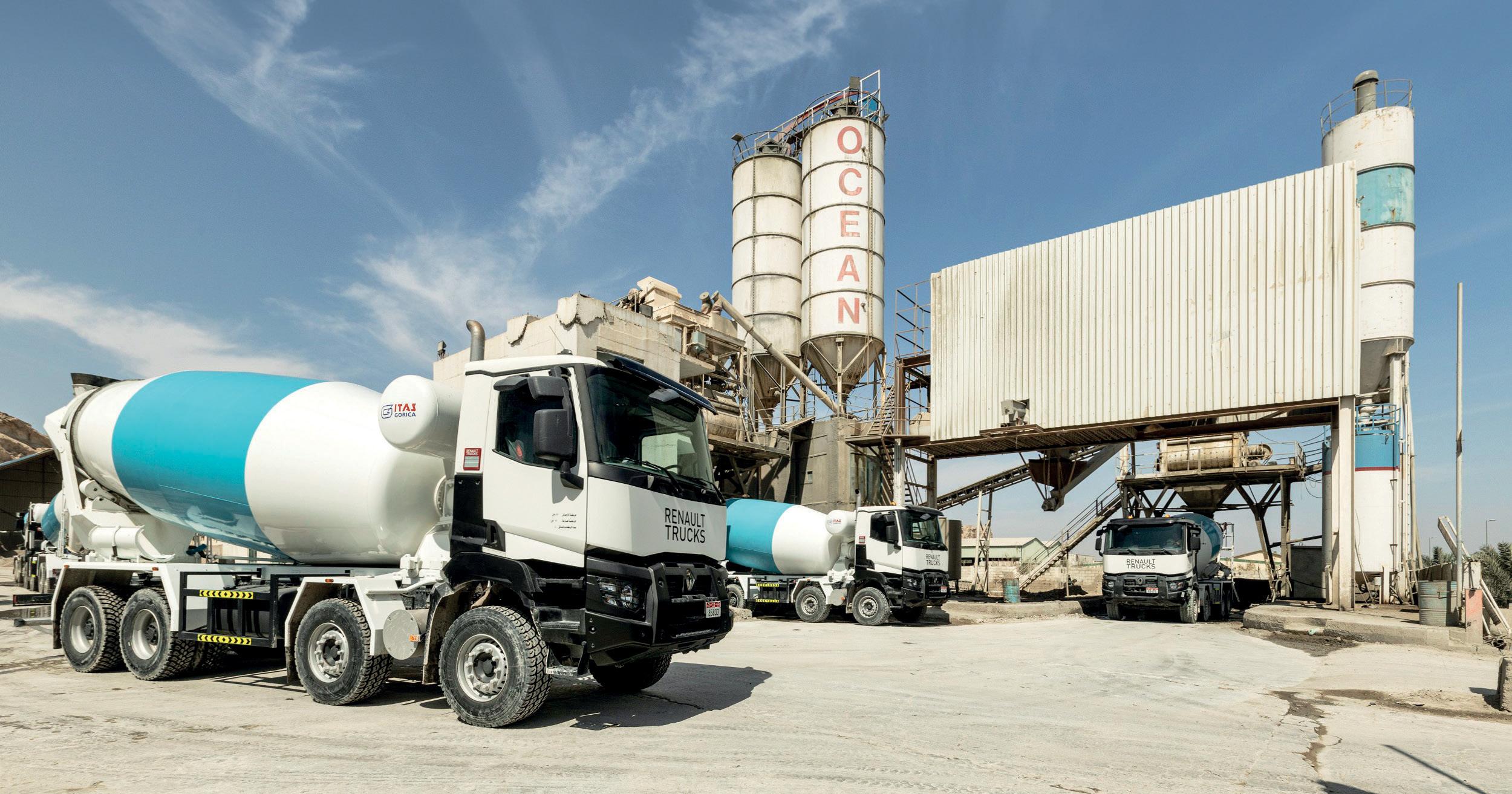
Industrial production has increased in countries such as the UAE, Saudi Arabia, Kuwait, and Qatar. Production would be pushed by a rising population and high disposable income. Manufacturing and logistics firms would help the economy in the future. For example, the first phase of the Dubai-based Jafza Logistics Park project is scheduled to be completed in 2023.
Governments in the Middle East and Africa are devoting time and resources to sustainable transportation technologies and renewable energy, which are predicted
The construction industry is expanding rapidly because of the large number of projects in the pipeline in each Middle Eastern country, and this is also related to the Middle Eastern governments’ attempts to diversify their economies.
to enhance demand for and use of buses, hence aiding the market growth.
The Middle East and Africa bus sector is seeing an increase in the use of electric buses. With increased worries about the environment and sustainability, governments in the region are investing in electric buses to replace those that run on fossil fuels.
Yutong introduced its most recent EV battery safety technology in September 2021. It is the world’s first EV safety system to be tested on commercial vehicles in batches. It provides five layers of security, including whole-vehicle security, box security, system security, monitoring security, and
component security, while also achieving three significant improvements in safety, road adaptation, and all-weather capability.
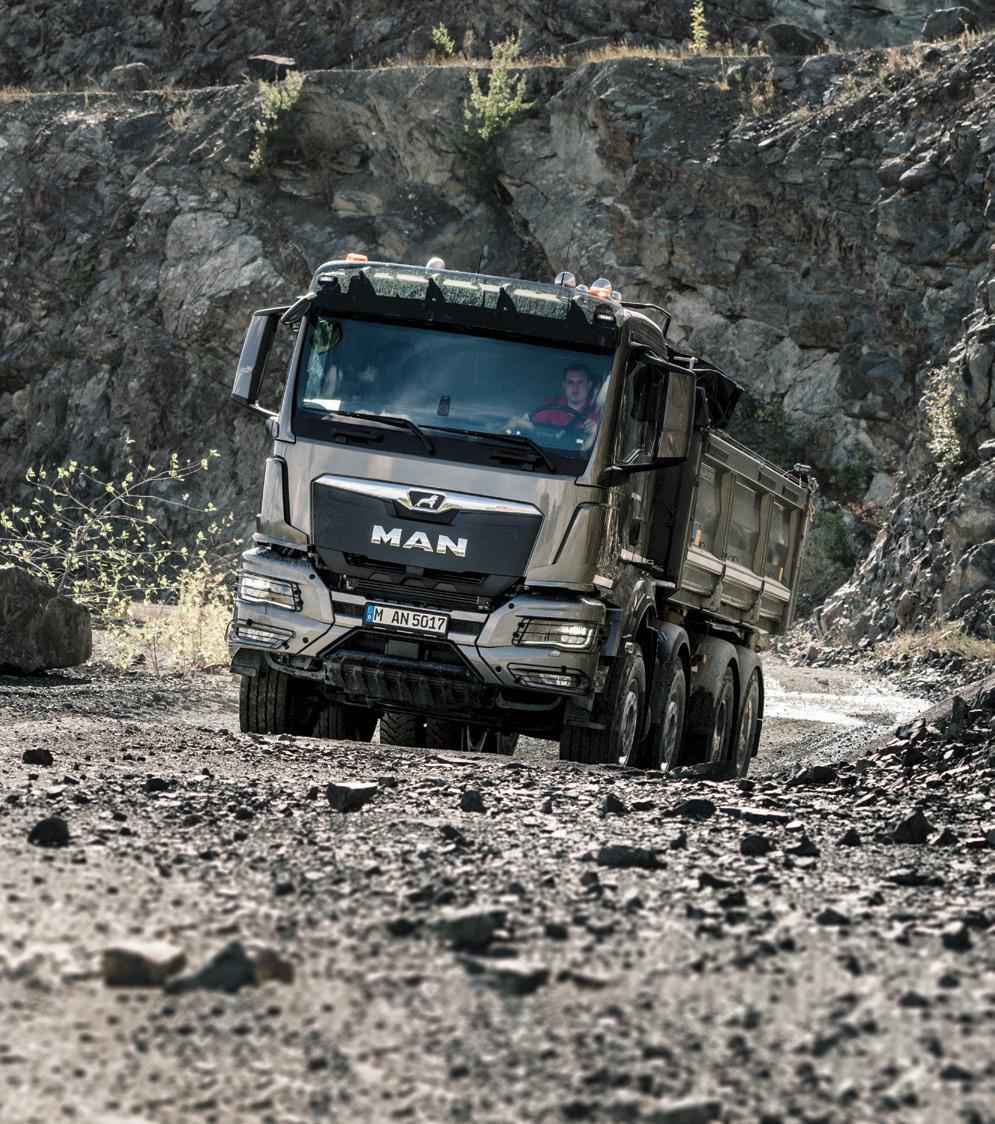
Admiral Mobility has announced plans to import 5,000 Geely Farizon electric commercial vehicles to the Middle East, including 3,000 commercial electric trucks (6-tonne and 8-tonne) and 2,000 electric Farizon SuperVANs. The company will get its first shipment in early 2023. The company wishes to comply with the UAE’s Sustainable Development Goals.
Volvo Group disclosed an extended range for Volvo’s battery electric trucks, as well as a new, completely electric rear axle that can accommodate more batteries.
Tata Motors Limited has presented a
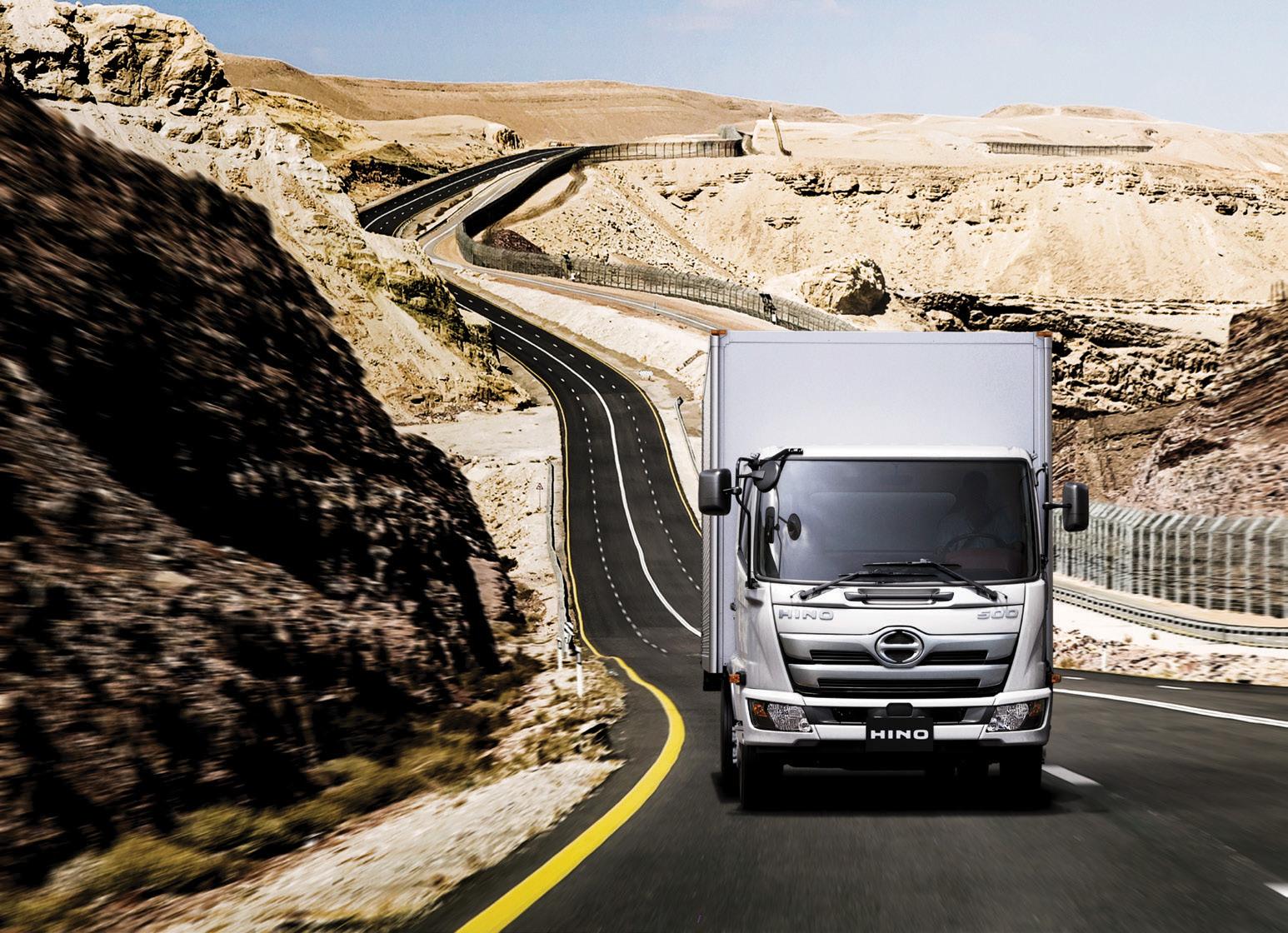
A surge in material handling has led to an increase in demand”THE ROAD TO DEVELOPMENT Governments in the region are also investing heavily in infrastructure development. It would boost demand for commercial vans, trucks, and trailers in the region.
wide range of 21 new commercial vehicles across all sectors. These cutting-edge vehicles complement Tata Motors’ longstanding ‘Power of 6’ benefit offering by addressing specific usage and applications while delivering improved productivity and lower total cost of ownership. They were created and constructed to meet the changing needs of cargo and passenger transport across segments and to lower the total cost of ownership (TCO).
The market size of commercial vehicles in Saudi Arabia is projected to experience an increase due to various factors. The increasing utilisation of commercial vehicles in the logistics and transportation sectors is a key driver of this growth, notes Aradhaya Singh, sales and marketing specialist at SPER Market Research.
According to its Saudi Arabia Commercial Vehicles Market report, the Kingdom is projected to be worth 6.59 billion by 2033 with anticipated surge of CAGR at 5.13%.
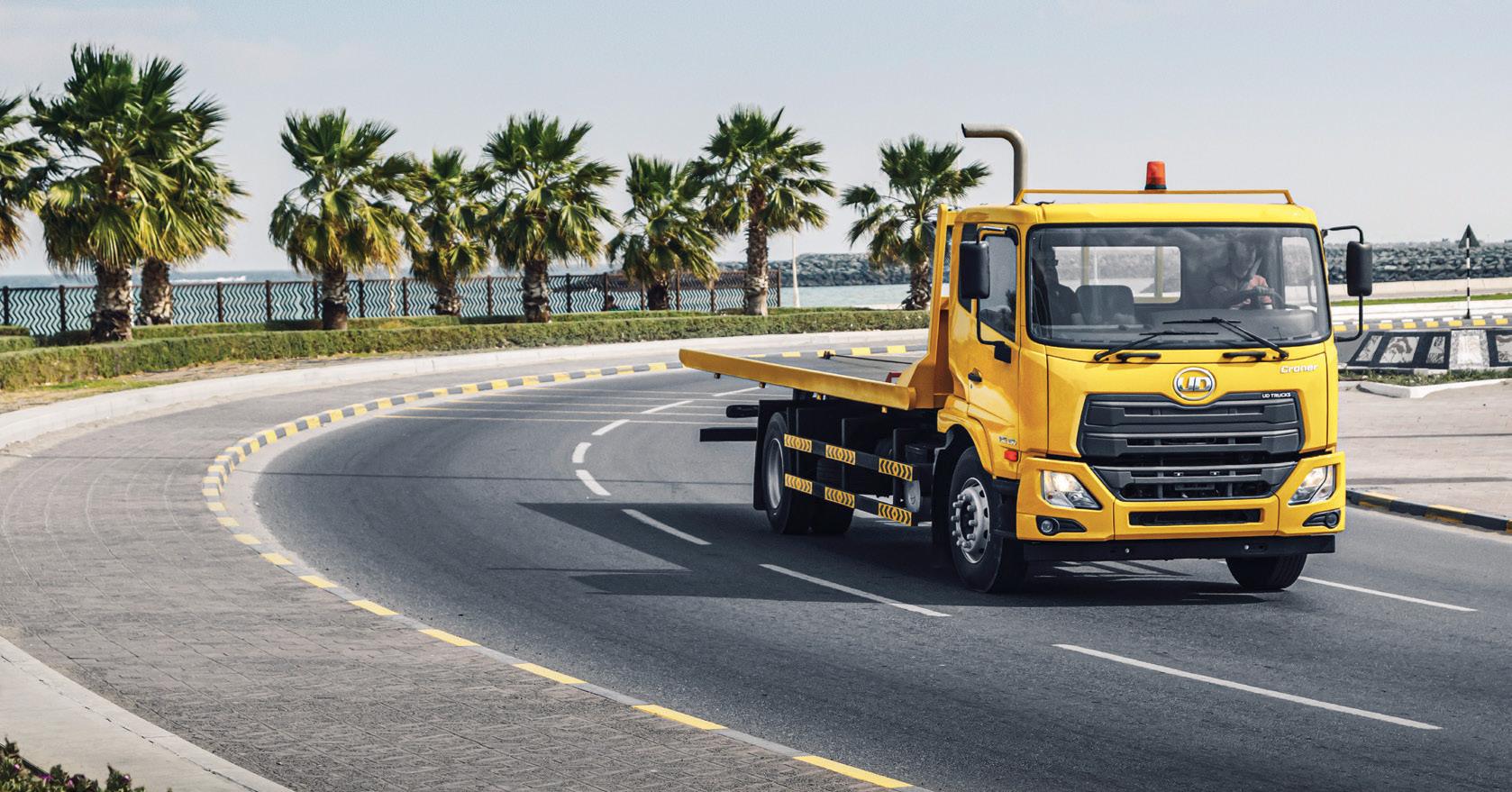
The thriving presence of small and medium-sized enterprises (SMEs) is creating a significant demand for commercial vehicles in the country. Additionally, the government’s focus on developing the construction and tourism sectors aligning with the Saudi Vision policy is expected to further boost the demand for commercial vehicles in the coming years.
The commercial vehicle market faces both opportunities and problems as a result of the quick pace of technological innovation. Electric and autonomous vehicles are becoming more prevalent in the market, which calls for large investments in infrastructure, charging stations, and
cutting-edge technology. For market players, adopting these new technologies could mean significant increases in capital expenditure and labour force training.
The Saudi Arabian commercial vehicle market has been significantly impacted by the COVID-19 outbreak. The disruption of global supply chains, which resulted in a shortage of automotive parts and components, has been one of the main repercussions. Foreign manufacturers’ deliveries of automobiles and parts were
The India commercial vehicle market is anticipated to grow with an estimated CAGR of over 8% in between FY2024FY2028, on the grounds of surging freight movements and growing production of commercial vehicles. Higher demands from end use industries for transportation and higher prevalence of public transportation for transits are driving the growth of the India commercial vehicle market in the upcoming five years. Growing investments in the commercial automobile technological advancements will also aid market growth.
Various end use industries like the food & beverage industry, construction industry, automotive industry and
delayed as a result of the pandemic’s lockdowns and restrictions on global trade. Due to the supply chain disruption, there were fewer commercial vehicles available on the market, which had an impact on overall sales volume. The pandemic also had an impact on commercial vehicle financing and leasing. Businesses became hesitant to take on additional financial commitments as they faced financial concerns. The demand for car financing and leasing decreased as a result, which had an effect on the sales and income of financial institutions and dealers of commercial vehicles.
The Central area, which contains the capital city of Riyadh, is regarded as the leading region in the Saudi Arabian commercial vehicle market. The majority of the nation’s businesses and industries are concentrated in Riyadh, which also acts as its economic centre. Given their economic significance and industrial operations, other regions, such as the Eastern region (Dammam and Jubail) and the Western region (Jeddah), also play key roles in the commercial vehicle market. Additionally, some of the market key players are Ashok Leyland, Hino Motors Limited, Tata Motors Limited, Volvo Bus Mercedes-Benz KSA Commercial Vehicles, Volvo Trucks Corporation, Others.
healthcare industry, have high usage of commercial vehicles like trucks for transportation of raw materials as well as for the distribution of final products from production units to sales channels, will drive the growth of the India commercial vehicle market in the next five years. About 568.56 thousand units of commercial vehicles were sold in the country in fiscal year 2021. Due to higher numbers of regular commutes of population from various regions to factories and production units for work further increases the demand of commercial vehicles like buses, vans, etc., thus facilitating the growth of the India commercial vehicles market in the future five years. Over 1.6 million registered buses are functional
in India, and the public bus sector operates as 170,000 buses carrying roughly 70 million people per day.
The Indian automotive industry is rapidly expanding on the backbone of increasing demands for commercial vehicles, growing production of transit and transportation vehicles, along with higher prevalence of by road freight movement to the difficult terrains of the country.
Increasing development of the desert lands, hilly regions, and other difficult terrains enhance the demand for commercial vehicles like low duty trucks, heavy duty trucks, buses etc. that drives the growth of the India commercial vehicle market in the future five years.
The growth of SMEs is creating interest in KSA”BOOST TO DEMAND Governments in the region are also investing heavily in infrastructure development. It would boost demand for commercial vans, trucks, and trailers in the region.

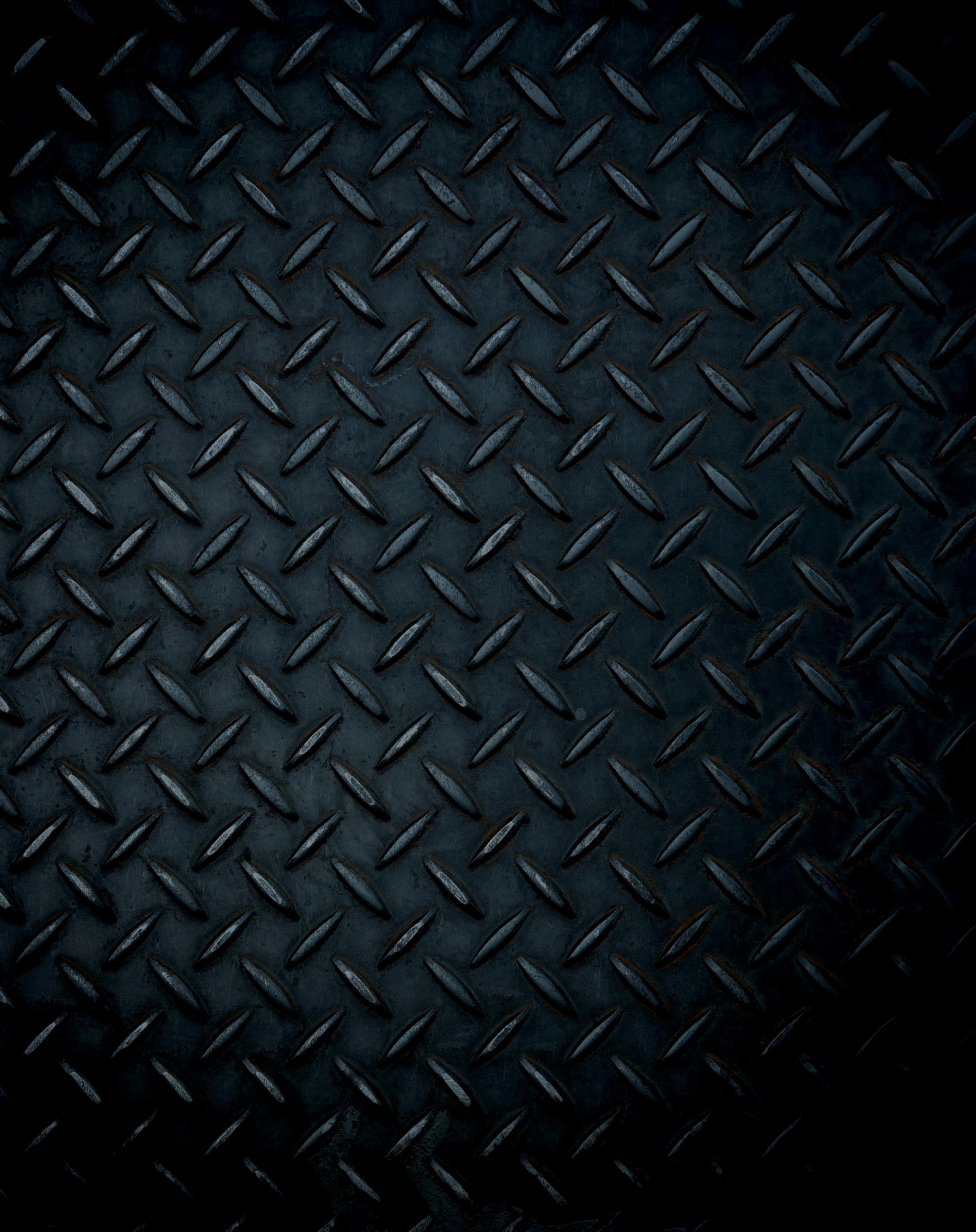

Al Masaood Group says the successful completion Phase 1 and Phase 2 of its bonded warehouse system in collaboration with the General Administration of Customs in Abu Dhabi marks a new era of seamless operations for the firm.
This collaboration is a result of a strategic partnership between the two entities announced in 2022 that aims to create better synergies between the government and private sectors, leading to improved work efficiencies and substantial cost savings.
The successful implementation will see more seamless operations for imported and exported goods at Al Masaood Group’s premises in Abu Dhabi.
Al Masaood will benefit from seamless Port-to-Warehouse operations covering all vehicles as well as all spare parts imported by the Group’s divisions, whether for vehicles or industrial engines. The operational implementation, ultimately, will significantly ease the process of shipment clearances for all goods and vehicles.
“The completion of both phases of the bonded warehouse system is a significant milestone that marks a new era of seamless operations for Al Masaood Group’s imported and exported goods in Abu Dhabi,” said Ahmed Salmeen, Al Masaood Group’s chief executive, Government Affairs.
“This was only realised with our steadfast partnership with the General Administration of Customs in Abu Dhabi and underscores our commitment to developing and nurturing alliances with private and government entities in the UAE to further support the country’s economic ambitions and reinforcing the nation’s role as a global business hub.”
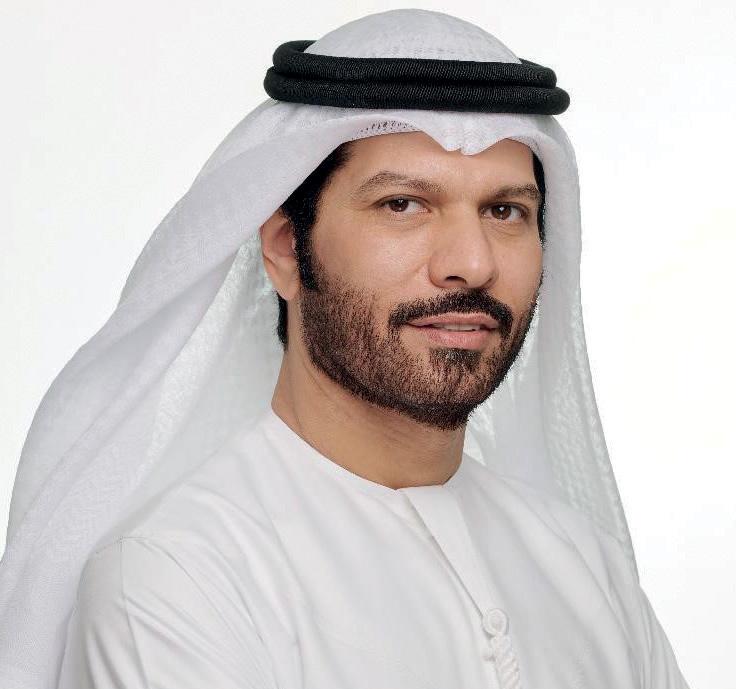



The Yokohama Plant commenced operations in 1935, two years after Nissan’s founding. It built its 10 millionth engine in 1976, its 20 millionth in 1986 and its 30 millionth in 1997. Reaching the 40 million milestone in the same year Nissan celebrates its 90th anniversary makes this achievement all the more special.
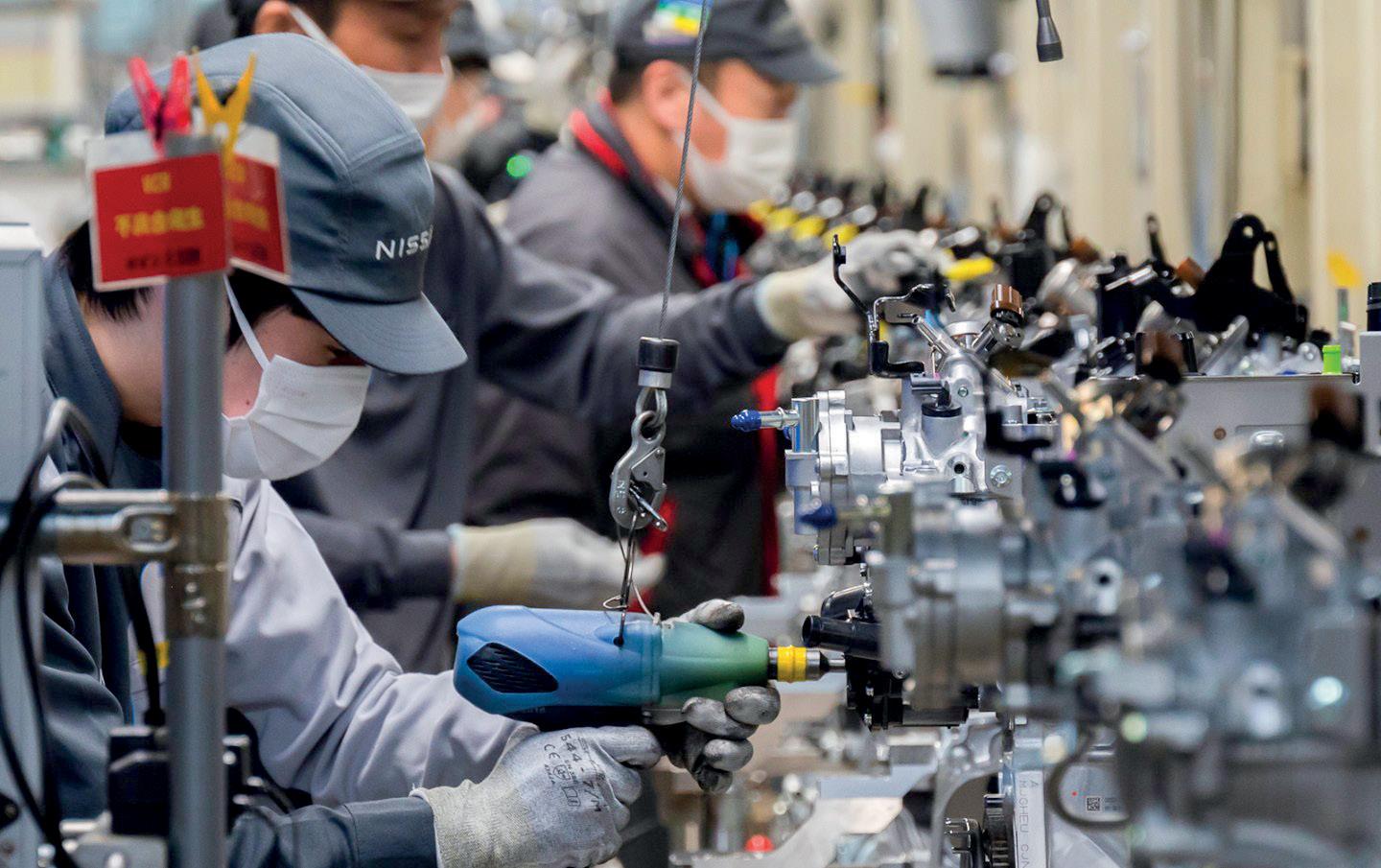
Tamiyo Wada, plant manager of the Yokohama Plant commented: “We were able to reach the 40 million milestone thanks to so many customers around the world embracing our cars.”
A number of engines made by the Yokohama Plant have left their mark in automotive history. These include the 1979 L20ET, which was Japan’s first turbocharged passenger-car engine, and the
1983 VG, the country’s first mass-produced V6 engine. The Yokohama Plant now makes the VR38DETT engine, which is handassembled by skilled takumi master craftspeople for the Nissan GT-R. Since 2007 it has produced the VC Turbo — the world’s first mass-
produced engine featuring variable compression ratio technology. “The world’s first massproduced VC Turbo engine achieves both high environmental performance and unparalleled power by adjusting the compression ratio,” said Wada.
Al-Futtaim Lexus hosted an automotive safety and car maintenance workshop last month with Huda Al Matroushi, the UAE’s first female mechanic and garage owner, at the Al-Futtaim Lexus DIP showroom. The workshop covered basic car maintenance tasks and safety tips that any driver can manage themselves to improve the safety of their vehicle and ensure a stress-free driving experience.
Al Matroushi is the UAE’s first female auto mechanic and runs her
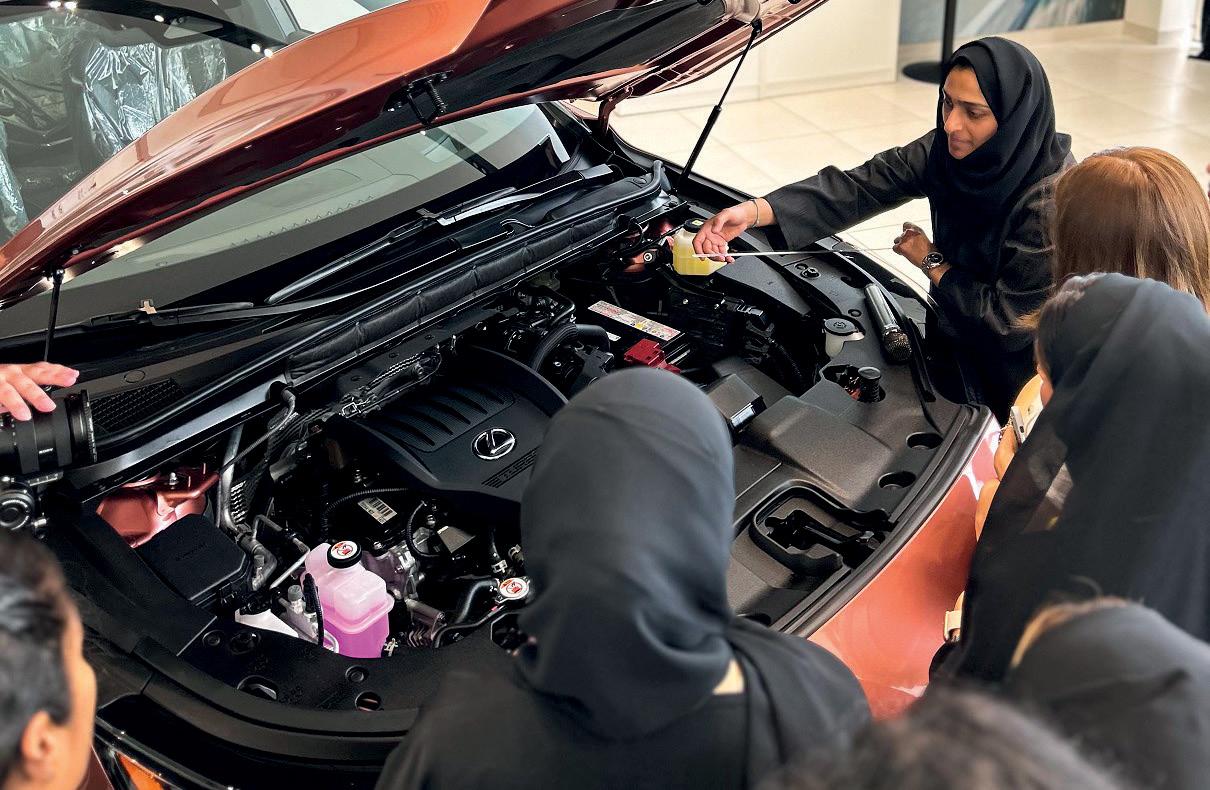
garage, Imex Car Service, in Sharjah. Al Matroushi gained recognition when His Highness Sheikh Mohamed bin Zayed Al Nahyan, President of the UAE, personally reached out to her to congratulate her on achieving her dream of opening her own garage, and had one of his own vehicles delivered to her workshop for a service.
Commenting on the initiative, Jacques Brent, managing director of Al-Futtaim Lexus, said: “Traditionally, the world’s auto-mechanical industry has always been a male-dominated
one, but Huda Al Matroushi is proving that this doesn’t have to be the case, especially in a country like the United Arab Emirates, where the achievements of women are greatly encouraged and celebrated. We are pleased to host this workshop for Al-Futtaim’s women employees and guests to improve their knowledge of automotive safety and maintenance, thereby improving the safety of all road users.”
The workshop covered a range of car maintenance tips that should be considered by all drivers, regardless of their mechanical knowledge or skill level. These included checking the oil and coolant levels, ensuring tyres are in a safe condition, the condition of the battery and more. The workshop also covered the meaning of the various dashboard warning lights, as well as guidance on maintaining your car in the hot summer months.
Al Matroushi said: “Most people think that maintaining your car is a job only for garages and service centres, but all car owners should know the basics of maintaining their vehicle in a safe and roadworthy condition.”
In the hustle of Saudi’s booming market, waiting for your fleet’s wheels to hit the road can be a real headache, especially when your clients are counting on timely deliveries. With the market becoming increasingly competitive, the reliance on dependable distributors like Juffali Commercial Vehicles (JCV) becomes your secret weapon for success.
JCV is the trusted go-to for Daimler Truck AG in Saudi Arabia, showcasing
Mercedes-Benz Trucks, FUSO Trucks & Buses, MCV Buses, EvoBus, and Mercedes-Benz Vans. In this issue, we’re zooming in on how JCV crafts a seamless customer experience, offering top-notch products, reliable servicing, and original spare parts across the Kingdom. Chatting with JCV’s CEO Heiko Schulze and the mastermind behind it all, Alexandru Cretu, National Service Director, “say they want their teams of technicians to be ready whenever a fleet client needs them the most.
According to Alexandru Cretu, JCV’s Saudi tech powerhouse is the gamechanger in this competitive landscape: “Tapping into their potential is key to a triumphant tomorrow. JCV’s service matches our cutting-edge vehicles. Our local experts are on-site, providing unwavering support. Rapid solutions and precise error fixes are their strength. With top-notch technical know-how
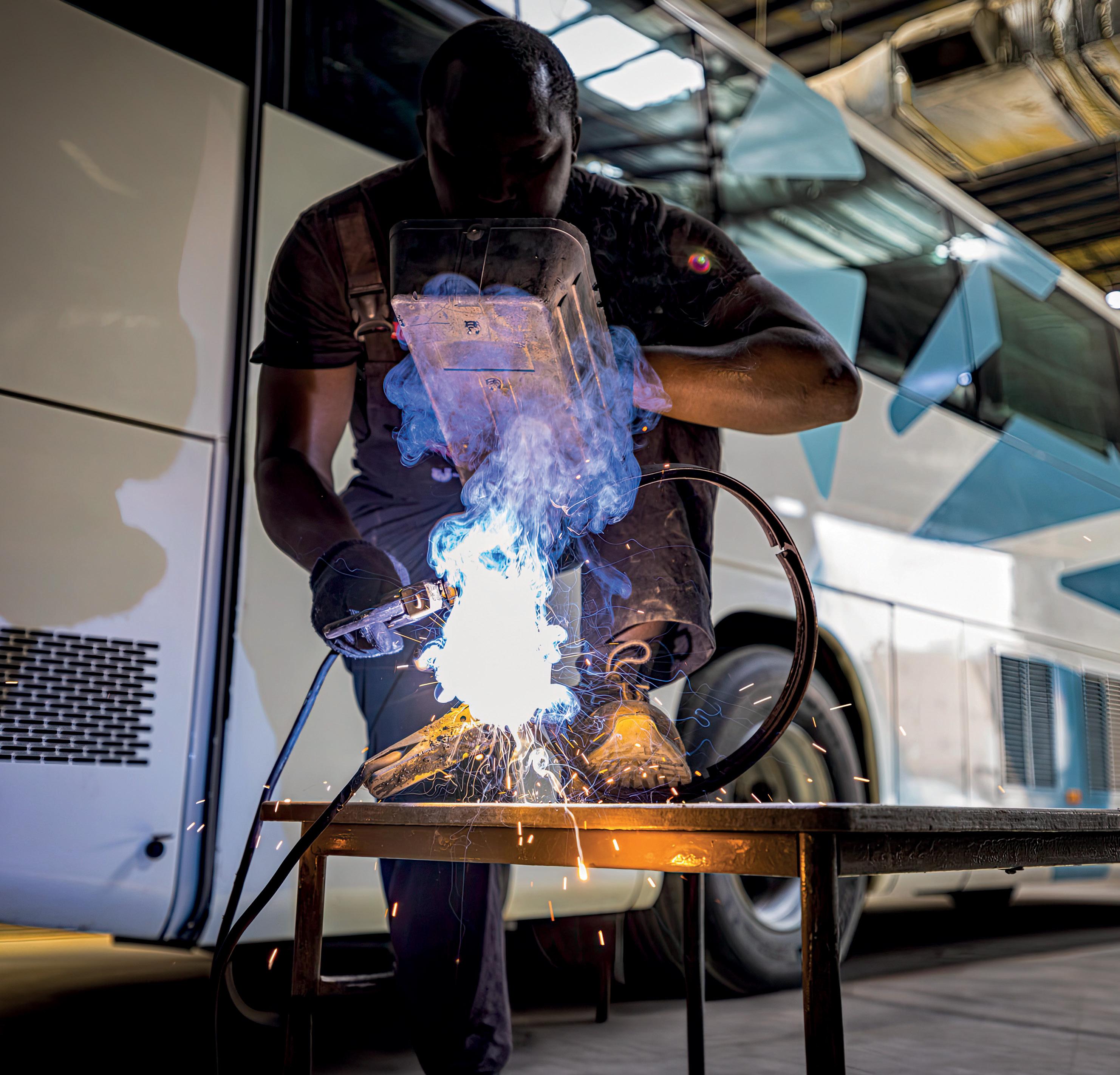
Our local experts are on-site, providing unwavering support”
and access to advanced vehicle data and communication systems, they’re primed to deliver excellence.”
The journey begins at JCV’s network of Service Centers, where it will swiflty identify the needs of customers, adds Cretu.
“Our aim is not just to meet but surpass your expectations. From tailormade maintenance and repair solutions to flexible service contracts for all kinds of commercial operations, we are ‘here to serve’. With wide accessibility and mobile workshops spanning Riyadh, Qassim, Dammam, Jeddah, Abha, and Jizan, along with over 28 Mobile Workshops ready around the clock, JCV has Saudi Arabia covered.”
While it’s a common trend in Saudi’s market for major distributors to present tailored service and maintenance plans for fleets, Cretu points out that JCV stands apart. “Our service contracts,” he highlights, “commence with creating optimal and crystal-clear service programs for fleets. The advantages are simple, total peace of mind is guaranteed through strict cost control.”
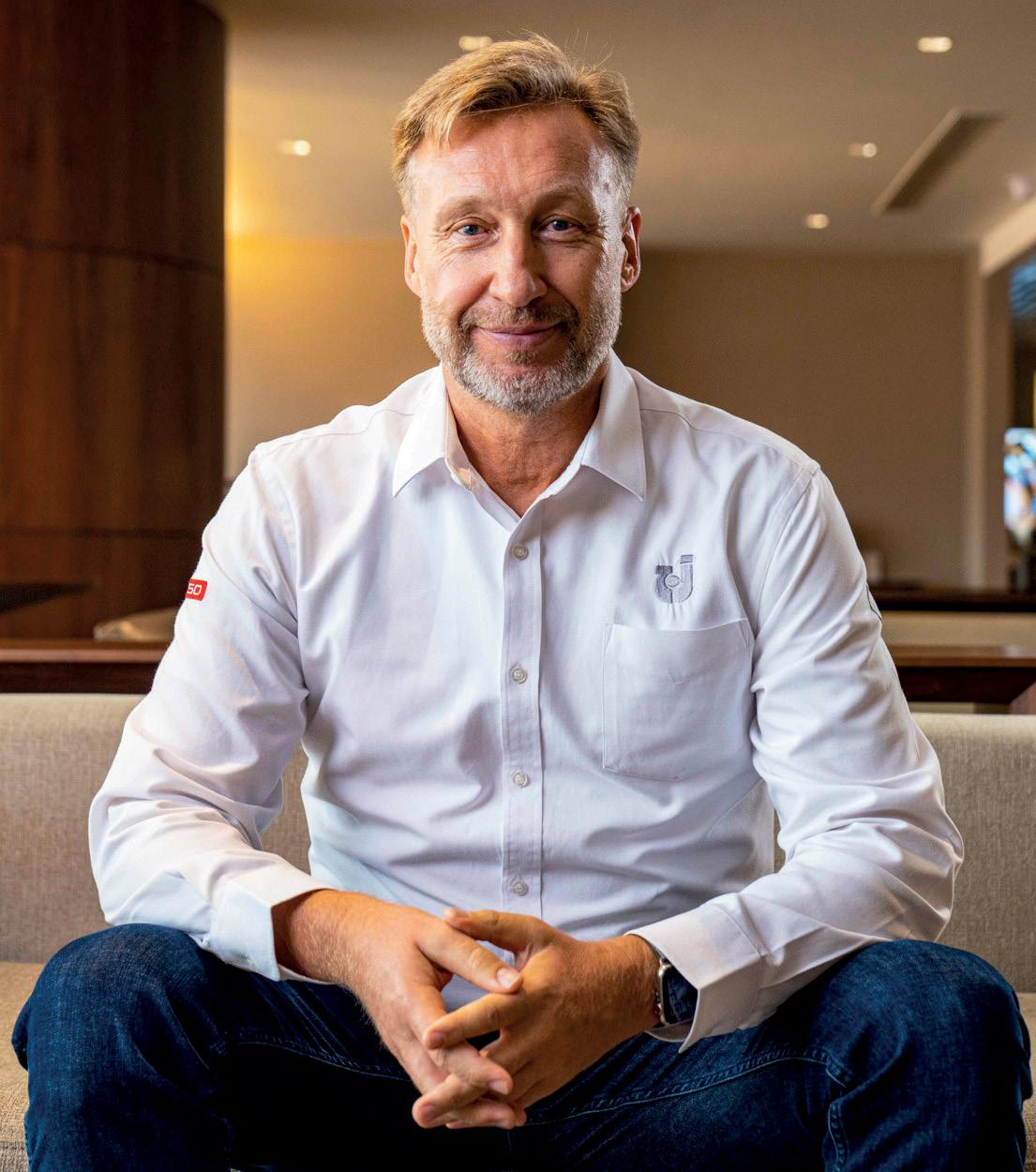
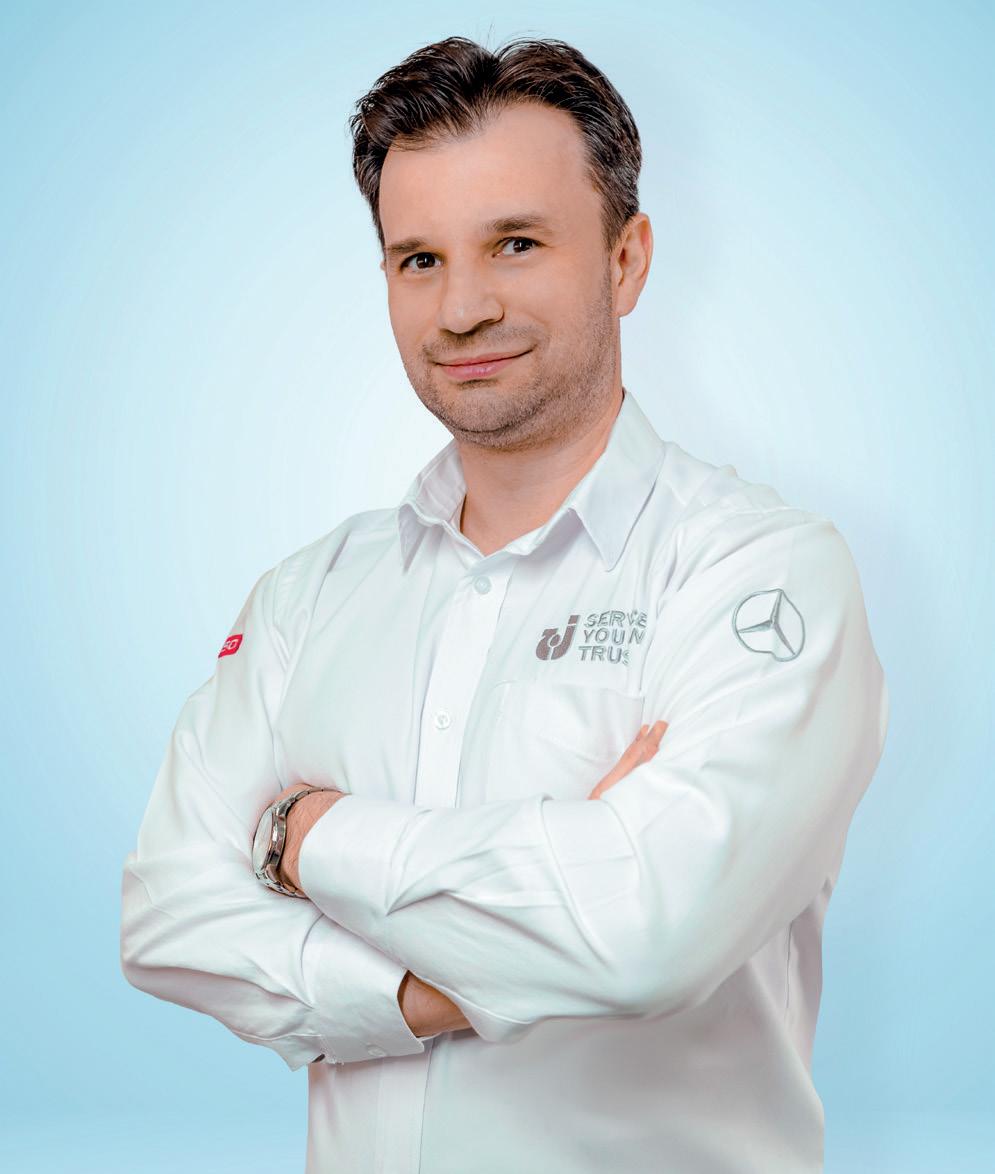
This means no repair invoices for covered post-warranty fixes or part replacements due to wear and tear throughout the contract, Cretu explains.
“With our transparent service contracts, you can precisely forecast your vehicle maintenance expenses
over the upcoming years. JCV goes the extra mile by offering fixed-fee contracts that cover a wide range of services.”
According to Cretu, the primary focus is ensuring vehicles maintain peak performance: “As you’ve predetermined your expenses, worries about inflation impacting your maintenance costs vanish. You can count on enhanced reliability, minimised downtime due to improved service intervals, and fewer setbacks.”
Cretu underlines that JCV clients reap the rewards of heightened efficiency throughout their operations.
“Using Mercedes-Benz Genuine Parts guarantees peak performance, improved safety, and minimized downtime. Enhanced resale value ensures new owners inherit a solid service history and meticulous maintenance, all executed by skilled Mercedes-Benz specialists.”
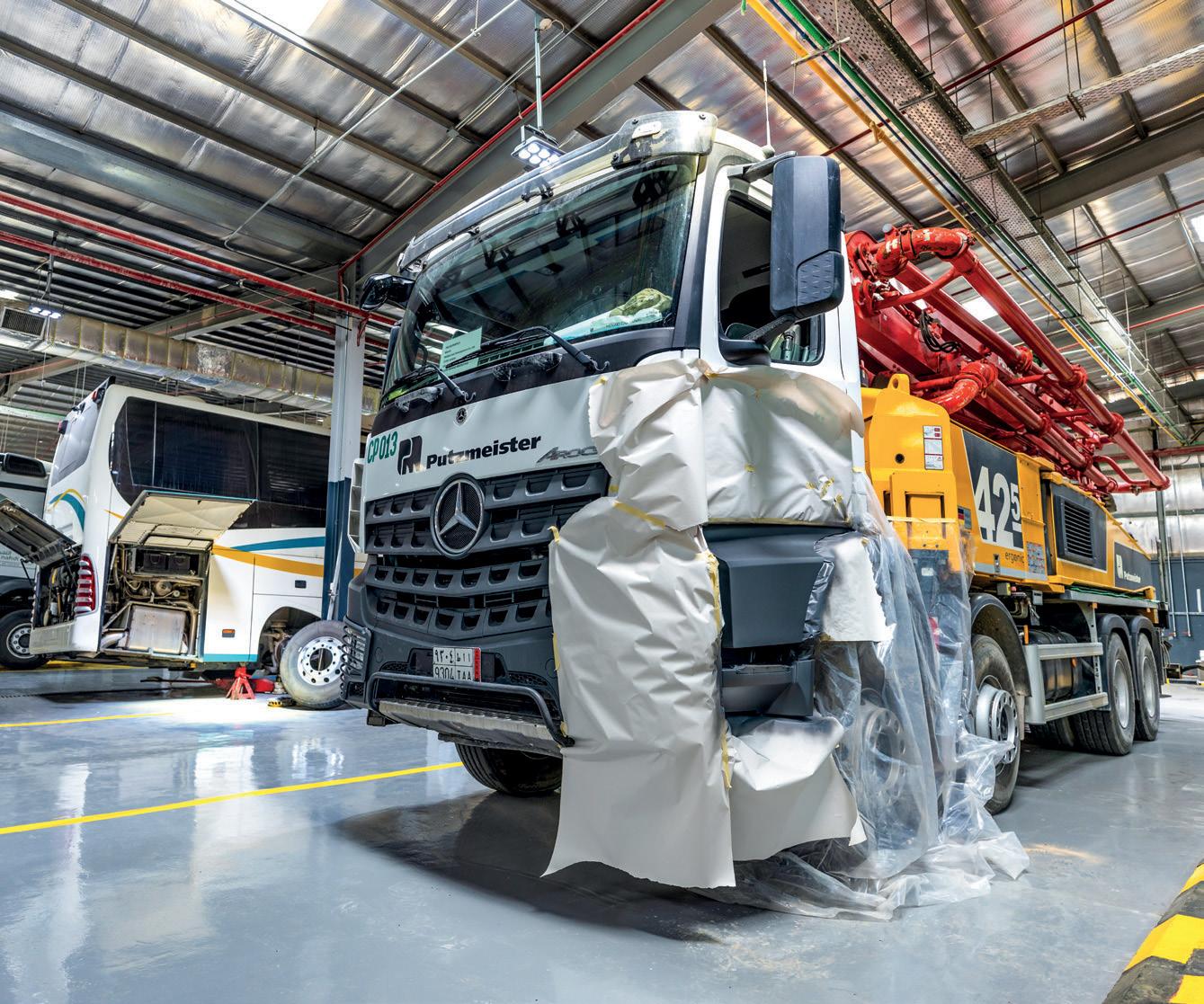
Saudi Arabia’s aspirations for a thriving, knowledge-driven economy are in full gear. Vision 2030 is the fuel propelling the nation towards a new era of affluence. Collaborating closely with the private sector, the government is steering the digital revolution in education, training, infrastructure, and healthcare sectors. JCV is thrilled about its role in this exciting developmental phase for our nation. As the exclusive agent and distributor of MercedesBenz Trucks, Vans, and Buses, and the recent distributor for FUSO Trucks and Buses, JCV joins hands with Daimler AG to provide steadfast service and support across the Kingdom.”
Lubatex stands for Lubricant Battery Export. For more than ten years, the Group has been the exclusive distributor of premium automotive batteries in Africa, the Middle East, and French overseas territories, with recognised and well-regarded brands such as Varta, Energizer, Optima. Its batteries are produced by the largest and most advanced producers of batteries for the biggest car makers, ensuring top quality over production and time. With more than two million batteries sold every year, Lubatex Group has become a key player in the premium battery aftermarket sector and is working at expanding in the GCC region through Lubagulf, its Dubaibased office and warehouse. Ahead of its appearance at Automechanika Dubai where it will reveal a revamped identity for its iconic Freebatt brand, Shahine Awasthy, CEO –Lubagulf, says the “human sized company” understands its customers’ changing needs and
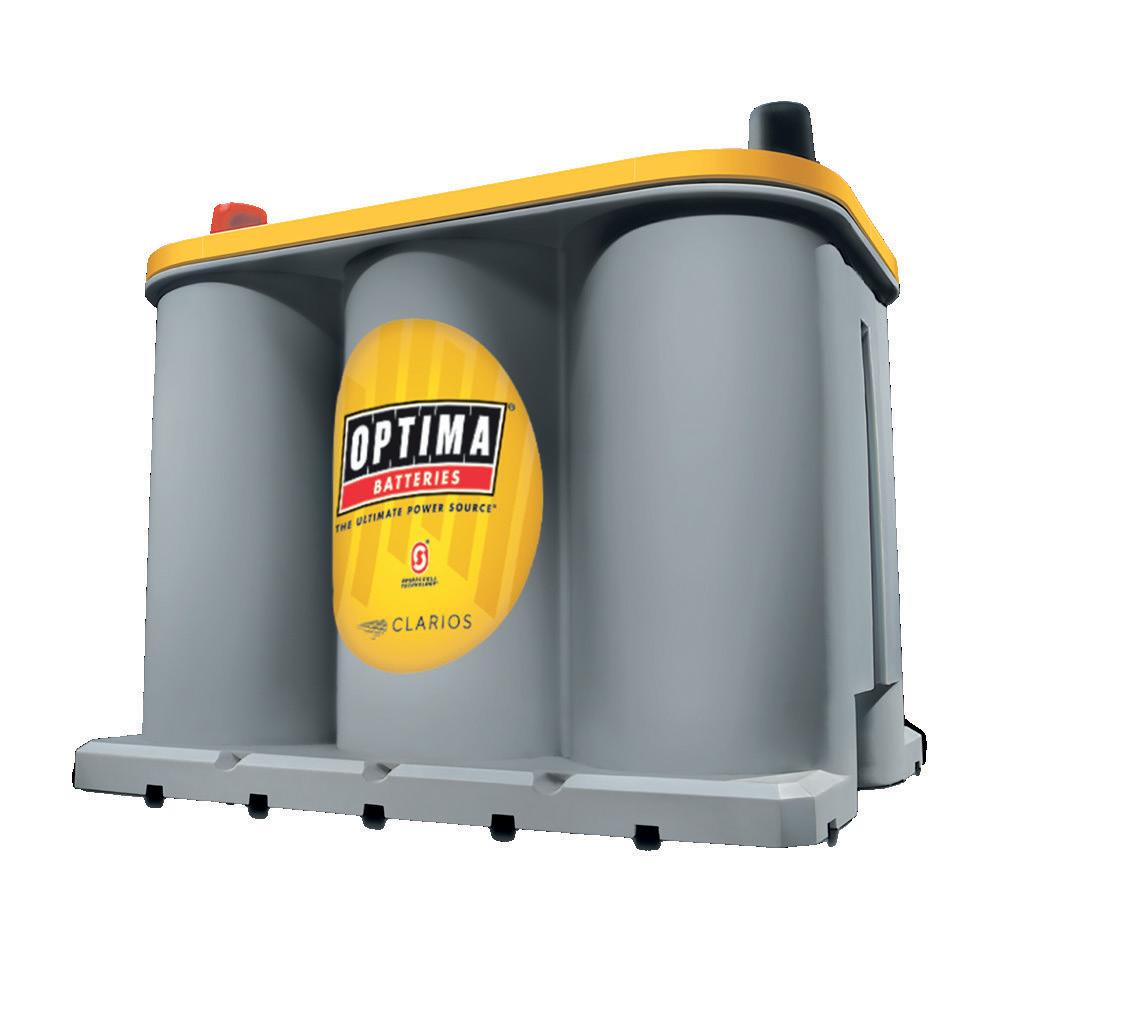
how providing them with the most suitable solutions with fast lead times, flexibility and customisation are the key to its success.
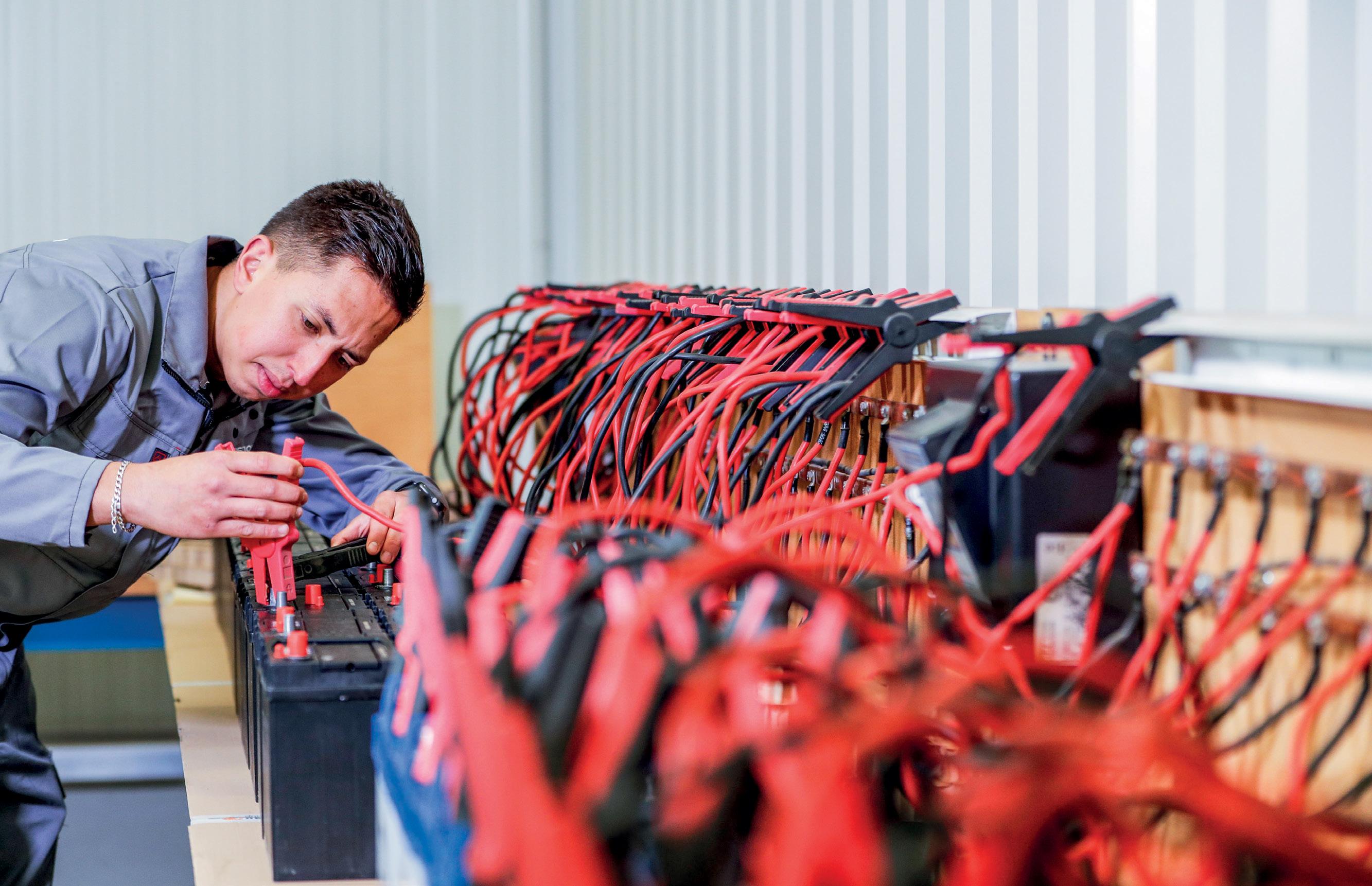
The automotive battery business remained dormant for over a century, with minor developments in the battery. It was not a focal point for the automotive industry unlike technological developments as in electronics, tires etc. Then, the sudden rise of technological equipment fitting our cars, the implementation of Start/Stop systems, anti-pollution lawsnot to mention the fuel prices – and the recent onset of EV’s, the need for better and new technology batteries increased drastically. This saw the development of the AGM, EFB and Lithium
polymer batteries, specifically designed to respond to the energy-demanding consuming habits and environmental concerns.
In terms of volumes, demand for batteries are directly linked with the global growth in vehicle sales. The average growth in the battery market is estimated to be 8% CAGR in the Middle-East, especially due to the rise in the expat populations in UAE, the new laws in KSA allowing women to drive… such factors have accelerated vehicle sales.
The estimated market size is around 15 million units per annum in the GCC alone. Brand market shares have changed owing to the laws and product ranges in the market.
One of them being the antidumping laws which saw a major shift in
Shahine Awasthy, CEO –
Lubagulf
invests highly in
brand leadership from countries of origin, viz Korea, Turkey and India. European batteries now dominate the market due to the demand for quality batteries in the market as well as the growth in AGM and EFB sales owing to the start/stop technology in premium cars and commercial vehicles.
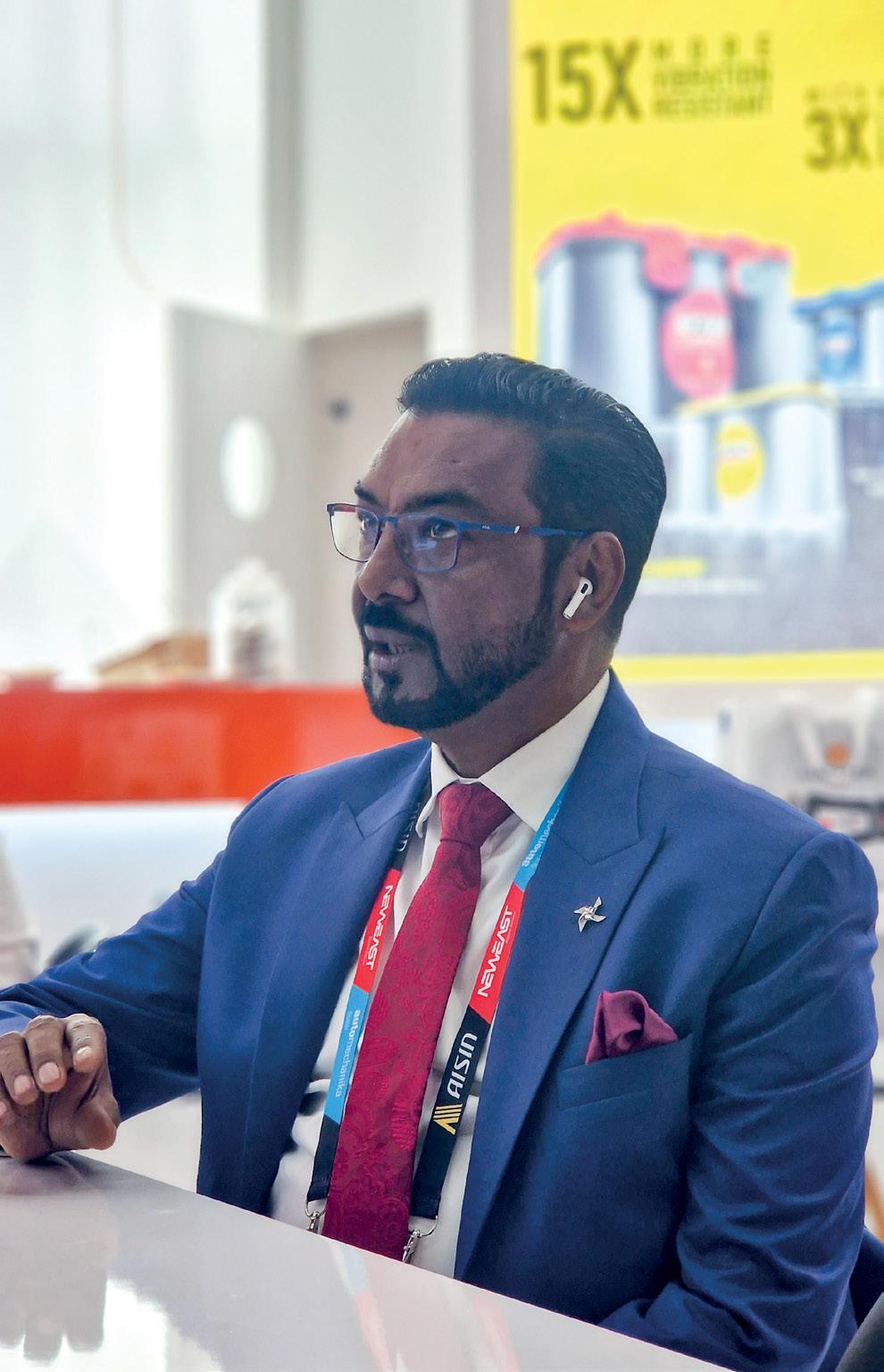

What advantages do your products have? Aren’t all batteries built the same?
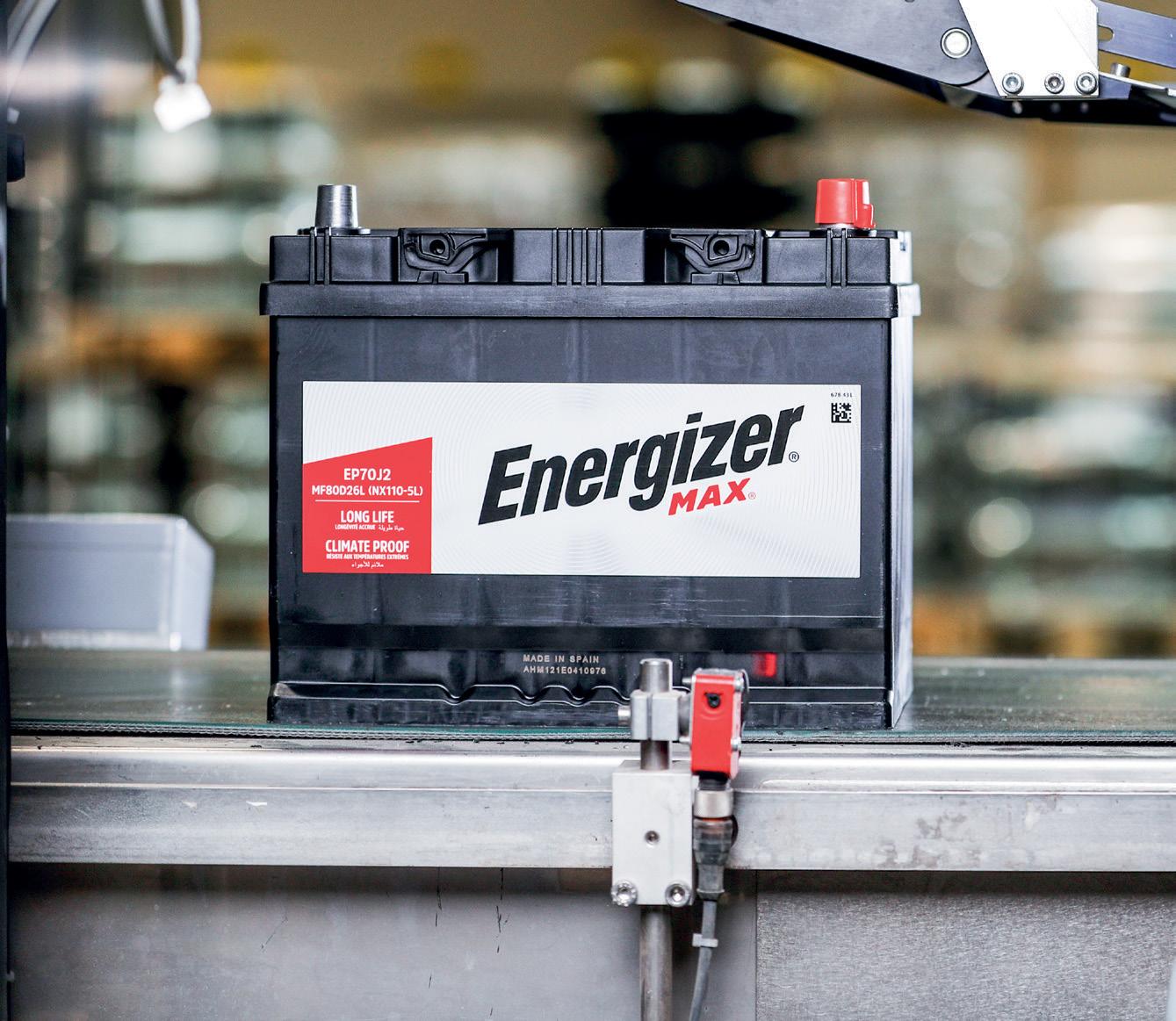
All batteries are not the same, though they have similar specs in physiological terms such as AMPs and sizes etc. The battery quality is benchmarked against charge/discharge cycles; and these determine the life of the battery just as a lubricant’s life depends on the engine life and not the kilometres driven. We distribute the batteries manufactured by Clarios which produces over 140 million batteries annually and has a major share in the OEM segment. These are the highest quality batteries made today and Clarios’ technology is used by others globally. Clarios invests highly in R&D, developing newer technologies every day, as shown by the introduction of AGM, EFB as well as Power Frame/stamped grid technologies. The Middle Eastern climate is not exactly a battery friendly climate. Heat and humidity are the factors affecting the battery life and quality. Keeping this in mind, Clarios set up a factory in Spain dedicated to the high heat range for the
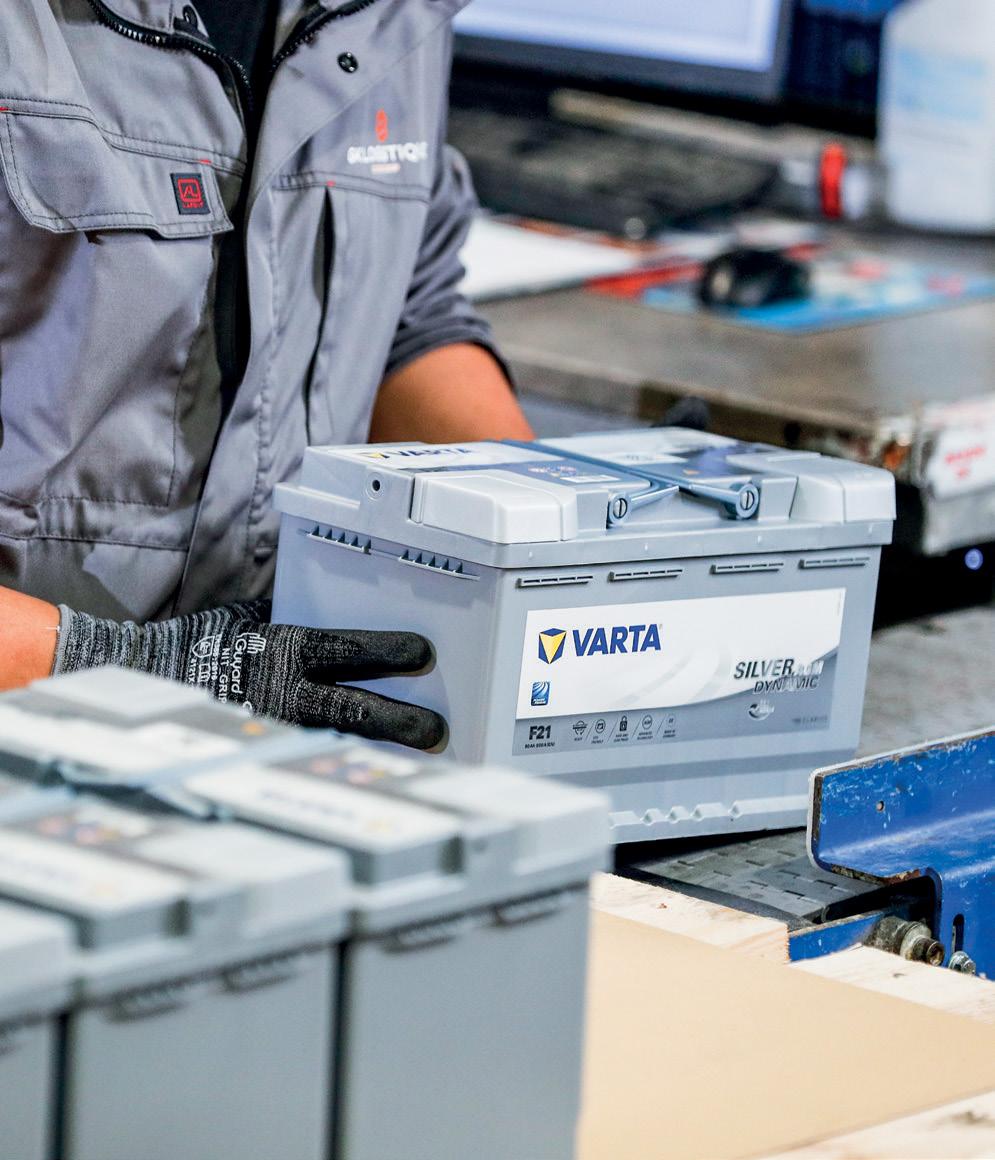
Middle East. These batteries are built with 50% thicker grids (positive grids) and 50% thicker separators allowing the battery to have a longer in-vehicle lifespan as well as a longer shelf life. This makes them suitable for the Middle-Eastern climate and for customers who store batteries for six months and more. Besides we have the best quality of AGM and EFB batteries which are still not manufactured by most companies worldwide.
Do you also customise here?
Yes, we do customise batteries for local markets, this includes special high heat ranges. We can provide batteries with specific branding and private labelling. We also engrave the batteries with special numbers and references to monitor the warranty claims and/ or prevent parallel importations. Unlike others we can also shrink wrap or supply the batteries into carton boxes.
How do you support customers?
We have an office and a warehouse in Dubai to cater to the GCC, it also makes us reactive and agile in terms of product delivery. With the help of our European offices, we support our customers with marketing, training and equipment for their staff, warehousing, seminars and regular market visits. This helps us keep a pulse on the market changes and adapt. Likewise, it helps our customers to have the latest tools and strategy to grow in the market and fulfil end-users’ experience, whether individuals or fleets. Finally, our warehouse in France helps us to stock up to 100,000 batteries and gives us the possibility to offer one of the widest range of batteries.
Visit
The Middle Eastern climate is not battery friendly”
So far NEOM has been characterised as a largely futuristic industrial centre for Saudi Arabia, but now it also has a touch of super-luxury coming to its Red Sea coast.
Last month NEOM appointed JLS Yachts, a leading Middle East-based yacht agency and concierge service provider, as its ‘key partner superyacht agency’ for its luxury island development, Sindalah.

One of NEOM’s 41 islands, Sindalah will boast a world-leading yachting ecosystem with more than 5,000 berths. Opening next year, it is set to become NEOM’s first tourism destination, offering visitors an idyllic luxury lifestyle experience.
NEOM said its partnership with JLS Yachts will support Sindalah’s vision of becoming a global
yachting destination, with the island located just 17 hours’ sailing from the Mediterranean.
The agency’s office within the island’s marina will provide a comprehensive range of worldclass services for the comfort and pleasure of the yachting community, including berthing, provisioning, bunkering, customs clearance, transportation and travel arrangements.
JLS Yachts is the second official yachting partner, following the announcement by Monacobased BWA Yachting in June that it will also be setting up office at the Sindalah marina.
NEOM Chief Urban Development Antoni Vives said: “Sindalah will demonstrate to the world another level of seamless luxury and invite the yachting community to a new seasonal
destination in the majestic waters of the Red Sea. JLS Yachts is a partner to help realise the bold vision of Sindalah as we welcome the world to the first physical showcase of NEOM.”
A new glamorous gateway to the Red Sea, Sindalah has 86 berths for yachts up to 50m, and additional serviced offshore buoys for superyachts up to 180m.
On the key partnership, JLS Yachts CEO Captain Stephan Corbett said: “With our new operational offices based in Jeddah and Riyadh, it offers us great exposure and services to our VVIP owners, captains and crew. As the largest and most experienced superyacht agency in the Middle East and northern Indian Ocean, we look forward to bringing our unique and rewarding services to the Red Sea and beyond.”


